#but not enough to be present for the central conflicts?
Explore tagged Tumblr posts
Note
I could see Katara recusing herself from the trial because of her personal connection to bloodbending. Is it fair that she serve as judge and jury on a trial for breaking a law that she wrote? But if that was the logic behind her exclusion, I would have appreciated a throwaway line to that effect. Otherwise it just looks like sexism…
Probably should have been more clear in my tags - I didn't want her to "lead" Yakone's trial in the sense that she's the judge and jury, but more in the sense that she's shown as a fellow figurehead... just like Sokka, Toph, and Aang were in the flashbacks. Toph actively hunted Yakone down and is present at the trial. Aang takes time away from his duties that he "typically wouldn't" to help Toph hunt him down and is present at the trial. Sokka is at the trial as a councilman and literally gives the verdict of the council.
Meanwhile Katara, the person who fought to get blood bending banned in the first place, the near single political recognition we're given of hers in TLOK, is just.... somewhere else? Had no interest in helping Toph track him down? And even if she wasn't present at the trial as a proponent or activist of some sorts, she could have been in the audience. Like you don't think she wouldn't have some bearing of interest in this case? On the outcome? Even if she hadn't said a single word, the animators could have literally just drawn her in the empty chair next to Aang in the court and that would have had far better mileage (not perfect, but better) than her simply being nonexistent in every one of those flashbacks imo.
But this is just one example. Katara's character (amongst the others) after the original series just... doesn't hit the mark for me. Sure, TLOK and other post-ATLA material will tell me she's a fighter, a healer, an activist as an adult etc but when it comes to actually showing it, such as how they did for Aang, Toph, and Sokka in TLOK... well, they don't. Katara simply doesn't get the same relevance as they did. And it leaves such a bad taste in my mouth.
#atla#katara#TLOK: Katara's an activist!! She's a fighter!! She's the best healer ever!! Just ignore the fact that we'll never actually show her doing#any of those things#meanwhile Toph and Aang and Sokka get flashbacks as adults showing them as central figures in their world#Old Toph and Old Zuko get fight scenes (Old Katara doesn't)#Old Zuko gets to be involved in conflicts even though he's not the active fire lord anymore#Meanwhile Old Katara just... kinda gets to be there??#but not enough to be present for the central conflicts?#hell she's not even present for her own granddaughter's ceremony like??? lmao#just to be clear: I dont like the handling of the other gaang members as well in TLOK#but Katara (and poor poor Suki lmao) definitely got the worst of it my book#asks
15 notes
·
View notes
Text
A 3-Part Book Editing Checklist

PART 1: The "Big Picture"
Identify and fix macro problems relating to plot, character development, narrative arc, and theme.
THEME & IDEA
Is a compelling dramatic question present throughout the book?
Is there a clear theme? Is it well-developed and engaging?
Can you recap your story or argument in this single sentence? “[Character] must [do something] to achieve [goal] or [reason why the audience should care]”
Is there a clear central conflict? Is it resolved by the end of the book?
STRUCTURE Fiction & Memoir; Nonfiction
Fiction & Memoir
Is there a strong beginning, middle, end?
Does your exposition effectively set the story? Introduce the cast of characters? Impart backstory?
Is your rising action triggered by a compelling inciting incident? Does it escalate the conflict and raise the tension?
Is the pace of each act in the narrative arc appropriate?
Does the plot maintain forward movement in each chapter? Do subplots support that momentum?
Are all major plot threads and subplots resolved by the denouement?
Do the plot points sync with the narrative arc and theme that you want to convey?
Do the plot twists make sense? Are there plot holes in the story?
Nonfiction
Does the first chapter of your book introduce your central question and explain why it’s important to answer?
Does your exposition adequately introduce readers to your topic? Does it provide enough context for them to understand your main argument?
Does each chapter or section build on the information that comes beforehand?
Is the length and pace of each chapter appropriate?
Does each chapter contain an appropriate mixture of fact and anecdote?
Is your structure engaging and easy to follow?
Does your book contain any extra information that distracts or detracts from the main argument?
Are there any holes or gaps in your argument?
CHARACTERS Protagonist; Antagonist; Supporting Cast; Setting
Protagonist
Does the protagonist have strengths and weaknesses? Do these interact with the story appropriately?
Does the protagonist grow and change?
Does the protagonist have defining mannerisms? Clear character traits?
Does the protagonist have external and internal goals? Are they visible throughout the story?
Does the protagonist act believably in each scene? Is the protagonist’s behavior consistent? Chart the protagonist’s character arc over the course of the story. Is it clearly and compellingly conveyed in the story?
Antagonist
Does the antagonist have story motivation?
Does the antagonist have a believable backstory?
Is the relationship between the protagonist and the antagonist clearly defined?
Supporting Cast
Is the supporting cast fleshed out?
Do the secondary characters have a reason to be there? Do they:
Reveal key details?
Advance the plot?
Motivate the protagonist?
Help define the setting?
Are interactions between the secondary character and the protagonist believable and well-placed?
Do the secondary characters have distinguishing characteristics or mannerisms?
Setting
Does the setting make sense for the purposes of the story? Does it matter to the plot?
Are descriptions of the setting rendered effectively and appropriately?
Does each scene convey a clear sense of place and time?
Is the worldbuilding fully realized? Logically consistent?
Fact-check each scene in relation to the setting. Are objects, props, mannerisms, and behaviors native to the time and place of the story?
PART 2: The "Scene" Level
Strengthen specific elements within individual scenes
SCENES & CHAPTERS
Is the opening scene effective?
Does it start in the right place?
Does it have a hook? Is the hook immediately gripping?
Are the scenes appropriately paced to grab the readers’ attention? Are the chapter lengths effective?
Does each scene serve a purpose in the story?
Is each scene oriented in terms of time and place?
Are scene transitions smooth?
DIALOGUE
Does the dialogue serve a purpose in each scene? Does it:
Provide information?
Advance the plot?
Help the pace?
Does each character have a distinct voice?
Is the dialogue believable for the time and place of the story? Is the word choice reflective of the time period?
Does the dialogue use action beats to control the pace of the scene?
COMPOSITION Voice & Point of View; Prose
Voice & Point of View
Is the narrator’s voice consistent?
Is the voice appropriate given the context of the book and its story or argument?
Is foreshadowing used effectively, if applicable? Metaphors? Similes?
Is the viewpoint character always clear? Is it consistent between scenes?
Is the point of view suitable for each scene? Is there a better alternative for a viewpoint character in any given scene?
Prose
Is the backstory of the world or characters efficiently woven into the story?
Does each sentence contribute something to the story?
Do you “show, don’t tell” with your dialogue, characters, and setting?
QUOTES & REFERENCES
Are quotes and references used to support the argument?
Are all of your sources reliable?
Do quotes help aid the narrative progression, or do they interrupt it?
Have you paraphrased where possible?
Are there appropriate transitions before and after references?
Are all quotations accurate?
Have you chosen a citation style?
Have you cited all references according to that style?
PART 3: The "Line" Edit
Ensure the text is objectively correct. This covers everything from typos and grammar to continuity and syntax.
PUNCTUATION & DIALOGUE
Limit the use of adverbs in your dialogue tags. (Show, don’t tell!)
✗ “Why did you eat my turkey sandwich?” said Harry angrily. ✓ Harry upended the table. “Why did you eat my turkey sandwich?”
Check for the use of other dialogue tags and replace them with “said” and “asked,” unless other emphasis is absolutely necessary.
✗ “Did you just stab me with this thimble?” queried Amber. ✓ “Did you just stab me with this thimble?” asked Amber.
Check that all of the dialogue is formatted correctly.
✗ “I love you.” Said Pam. ✓ “I love you,” said Pam.
VOICE
Limit the use of weak verbs and adverbs in general.
✗ Leonard ran quickly to school. ✓ Leonard sprinted to school.
Replace all “hidden” verbs.
✗ Offer an explanation ✓ Explain
Check for the use of passive voice and replace with active voice, whenever appropriate.
✗ The ball was kicked. ✓ She kicked the ball.
Use “telling” words such as “felt,” “saw,” “knew,” and “seemed” sparingly.
✗ His head felt awful. ✓ His head throbbed.
LANGUAGE
Delete vague and subjective words.
✗ Could, might, maybe, more, poor, good, excellent, bad, some, multiple, really, literally, suddenly, simply, just, a little, almost, etc
Delete all instances of cliches in the text.
✗ It was a dark and stormy night.
Check for excessive repetition in the text.
✗ Go to [do something]
Check for instances of overly complicated language.
✗ In close proximity ✓ Near
Source ⚜ More: Writing Worksheets & Templates Writing References: Plot ⚜ Character ⚜ Worldbuilding
More Notes: On Editing
#editing#on writing#writing tips#writeblr#dark academia#spilled ink#writing advice#writing reference#writing inspiration#creative writing#light academia#literature#fiction#novel#writers on tumblr#writing prompt#booklr#bookblr#george romney#writing resources
224 notes
·
View notes
Text
Getting some thoughts out about Everhood 2 ( or: Analyzing the Root of All Evil )
Finished Everhood 2, and I may as well share my thoughts about the story. While I'm not sure if I'd say the story is better than the original, I think overall I actually may have preferred this game more to the original.
The pacing was far better for me, characters had a lot more time to breathe, which gave me a lot more time to get invested in them and really grow to care about them, which was unfortunately a nitpick I had with the original, as the majority of it's characters, barring a few, didn't really leave an impression on me, as it felt like they went by way too quickly.
But enough about that. I've got some thoughts to empty out regarding the story. Particularly an analysis regarding the Main Antagonist…
I think the main idea that Everhood 2 attempts to communicate is the nature of conflict within all storytelling and its relationship with the ones who experience said stories. This is most prominent in both our role as the player and through the character, The Root of All Evil / Shade.
The Root of All Evil isn't actually evil in and of itself, even if it's very much the core cause behind the evil characters in the story. There's no denying it's role as main antagonist, yet being the main antagonist does not necessarily denote it as being truly evil.
The entity itself holds no malice. It's an "entertainer," as it describes itself. While we are misdirected into reading it as evil incarnate and our ultimate nemesis in the game, it would be far more apt to label this entity as conflict itself, rather than evil itself.
Shade is the primary motivator of the story. The plot is set into motion by the stopwatch guiding us to them, where they immediately put on a grand show of their so-called "evil intent." They are present in the beginning and always on the sidelines, behind multiple characters, orchestrating massive, grand schemes, and giving us our central purpose: to find enlightenment and defeat the villain who antagonizes us time and time again. Each antagonist has some form of relationship with Shade, whether directly working with them or merely being influenced indirectly in their grand, cosmic game.
Yet, when Shade loses their puppets and is brought to confront us one-on-one, we begin our path to achieve enlightenment regarding the nature of our adversary, our role, and our entire quest.
Shade holds no particular drive to harm, and as said earlier, they lack any true malice. If anything, they treat you cordially when the game begins to reach its end. The enlightenment the player receives, confronting the End of Time as the literal end of the game's world, through the journey to meet God, implies that we are going to see God as an individual when we find our enlightenment, a character unto themselves, some unknowable entity that knows all. And this is not technically incorrect.
The twist is ultimately that we, ourselves, are already God in the world of Everhood. We are the player, after all. And so, the entire story revolves around us. The very fate of the world is determined by us. We lack conventional omnipotence, instead being a transcendent being that exists beyond the world and is unable to enter it directly, acting, instead, through a silent proxy and relying on others to complete our goals when needed.
Shade, as our counterpart, is just as much a God as we are. Shade manufactures conflict for the sake of the story to continue, as that is their ultimate purpose, being the embodiment of conflict itself. We, as players, are brought to overcome conflict—to give ourselves satisfaction and feel complete as we triumph over a truly memorable adventure. Shade's only goal is to entertain us with stories. Shade is transcendent as well, as conflict ultimately exists in all storytelling, yet unlike us, it exists in the world of stories, not in reality (well, not as we know it in fiction). Just like us, it acts through proxies and vassals to complete its goals.
Both the player and conflict necessitate the existence of the other. Shade is obsessed with us because we are their purpose. Their entire purpose is to create challenges to entertain us. That is why they exist: to put on a show for others to enjoy. An "entertainer", as said earlier. Thus, why so often Shade is found associated with Jesters. They are both based around the concept of entertaining others.
The plot is based around common set-pieces seen in adventure stories. Journeying to a mysterious island with a strange curse, or traversing colorful locales to get the power to confront a ferocious dragon, said to be the representation of our internal darkness. All steps on the journey to beat the villain: all motivation to keep us driving forwards to complete the story.
Ultimately, this is why Shade can't actually be "beaten." Why there's no real final boss battle against the main antagonist. We can defeat its proxies, and it even tries to give us a climactic final battle and ultimate villain utilizing Riley (proceeding to accidentally exert too much power and kill them instead, because nobody's perfect), before settling on using itself as a proper final challenge after the credits roll in a jaunty mock fight.
Conflict is the root of all storytelling. As long as stories exist, conflict will exist. As long as Everhood keeps getting played, Shade will still exist. And, as said by the Divine Mushroom, the quests will never end.
It never ends in Everhood.
#everhood#everhood 2#everhood 2 spoilers#please excuse how disconnected this brain dump is lmfao i just had a LOT of thoughts to get out of my little heeeeaaad
59 notes
·
View notes
Text
my issue with caitvi is honestly...i dont understand what its there for. what does it MEAN, what is the central theme of their story? Like, you look at timebomb and jayvik in comparison and they have so much MEANING.
Jinx and Ekko's story is one that heavily props up both of their characters. For Ekko, him giving up on Jinx and believing that Powder is gone for good, shutting down his care for her reflects his loss of faith in zaun, his paranoia and his close guarding of the tree and the firelights. But through his journey to the Good End universe he learned that Powder is still within Jinx, that she has beautiful qualities as Jinx and that in his world she has so much power and ability to change things. Him seeing Jinx for who she is, for her endless potential inspires him to go back to his reality and help fix it, to take the leap, to have hope for Zaun and for a better future. And in doing so he brings Jinx back to earth while at her lowest, after she's lost everything and puts that same hope for change into her. Their relationship, their story, is one about hope.
Jayce and Viktor's story is about control and perfectionism. Viktor loathes sm about himself. He thinks he is something that needs fixing, that he isnt enough. Jayce meanwhile wants to bring magic into the world, but he's naive and easily manipulated. Both of these mindsets leads them to attempting to progress with hextech in a dangerous fashion, in the pursuit of More. Viktor gets a kick in the ass with his terminal diagnosis and attempts to "fix" himself no matter the consequences, no matter his loss of humanity. When he is revived by the hexcore it only gets more intense, he leaves Jayce and all his connections in pursuit of "perfecting" everything else in existence. He believes flaws and imperfections and individuality only cause pain because he could only look ahead and see a dark future. Jayce meanwhile gets swept into politics and in his own way loses himself to his pursuit of their dream. it takes him getting sent to the Bad End universe, having to stew in the consequences of their hubris and, more importantly, in his own thoughts, that he achieves clarity. When Jayce is in the void with Viktor and he tells him he was never broken, that his imperfections were what made him who he was, and that he just wants to be with him again over any ambitions he previously held, he proves this by showing Viktor his memories of their relationship. He brings Viktor back to himself and they choose to stay together as the rune collapses everything, because what they truly needed wasnt perfection or progress, it was to appreciate each other in the present flaws and all. Their story is about appreciating what you have, about being in the moment.
But caitvi...I just dont get it. At first I thought their relationship was meant to be a reflection of Zaun and Piltover. But it just gets so messy the more I look at it. I suppose it makes sense considering the zaun vs piltover plot was handled messily as well. if my originally interpretation is correct then it makes sense that both plots would rely on the other working to make sense. Vi loses so much of her depth and she is hardly explored whereas Cait becomes very unlikeable. And then all of their conflict is simply brushed aside in the end. Its a mess. Please if you understand them and you got meaning from theur story please explain it to me. i want to like them, but i just cant make sense of it
#arcane#caitvi#timebomb#jayvik#caitlyn kiramman#vi arcane#ekko arcane#jinx arcane#viktor arcane#jayce talis#maybe one of them shouldve gone into the arcane with ekko and jayce#that seems to be the deciding factor
99 notes
·
View notes
Text
Okay, So I just finished binge watching all four Despicable Mes in one day, and I gotta say that I did not care for the fourth movie.
It was disappointing… which is a shame, because Maxime Le Mal is awesome.
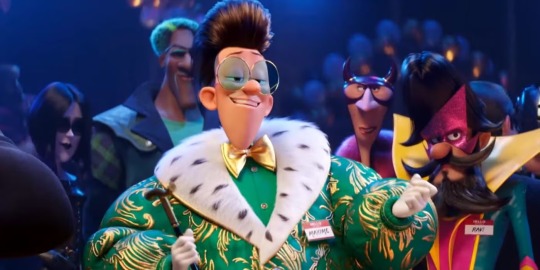
The concept of a cockroach villain, is epic. He had a great character design, a fun personality, and he had past conflict with Gru.
The problem with the fourth movie is that it is not plot driven enough and instead keeps splicing screen time for family fluff moments and side characters like Poppy.
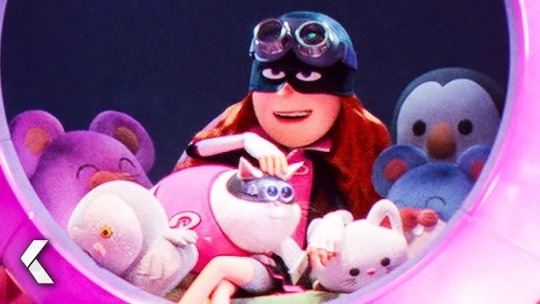
Poppy, as much as I thought she was a fun presence, was NOT needed in the movie, and neither was all of that Safe House Country Club shit. Why would they go out of their way to say ‘Hey Gru? Let’s stop acting like the grumpy protagonist we love and instead behave completely out of character so you can pretend you like playing tennis.’ It was unnecessary and not what we needed from a character we have grown to find charming because of the way he can be both kind and a grumpy asshole. (Like Shrek.) Shrek does not belong at a country club, and neither does Gru.
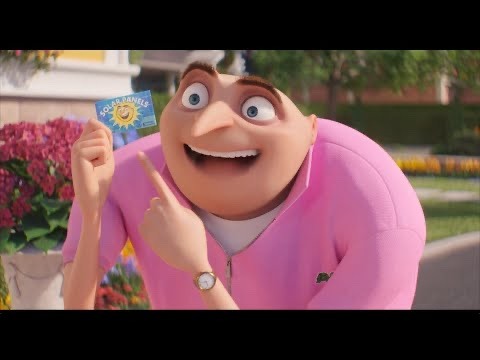
We introduce a villain school that Gru went to only to not only completely avoid talking about him or the school in that context, but bring it up again solely for an irrelevant character who overall contributes nothing the the story at hand.
All of the other films in some way had a proactivity to them that kept the main antagonist in mind, and this film does not work because they keep shoving Maxime to the side. They should have completely scrapped all the minion fantastic four hero parody crap and stayed focused on the overall narrative and developing the new central antagonist.
It would have been fantastic if we had gotten more background on the conflict between Gru and Maxime. Apparently they had a little rivalry or just generally were jerks to each other in school as we find out that not only did Gru steal his song, Maxime pantsd him in front of the school, not to mention how they interacted in the beginning of the film, so clearly there is bad blood. This is the first villain that had conflict with Gru specifically, and it would have been an excellent central plot point to focus on his early life, or a great way to develop a villain that’s built out of personal grudge rather than inherently destructive ambition like the others.
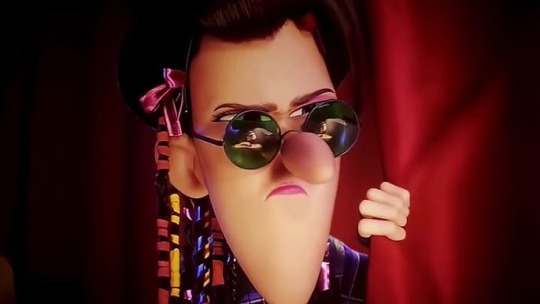
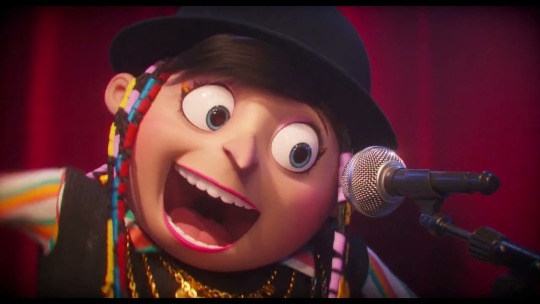
And instead that was SQUANDERED by this absolutely directionless travesty. Maxime’s girlfriend, first of all, was useless and distracting. All the little cutaway moments and side stories were unnecessary, and overall it was incredibly disappointing to have a guy that can CONTROL COCKROACHES do absolutely nothing with them. He could be strong and invulnerable, He could have been mutating more people, controlling swarms, he could have been going after Gru more intensely and talking about how they bullied each other and that could have been very interesting.
But no. This is the only film in which the main antagonist takes such a back seat that he can effectively be cut from the film and it would hardly impact a thing. Maxime had potential and stage presence, and they did nothing with it in favor of fluff.
And Listen, LISTEN, fluff isn’t bad, I love their family- but it should not comprise 98% of the film!!! It should be wedged into little moments between plot points. Even Despicable Me 3, which had a bizarre out of left field twin plot, handled their villain with more respect and managed to tie in the two narratives in a way that culminated in a final act that was satisfying to all the characters.
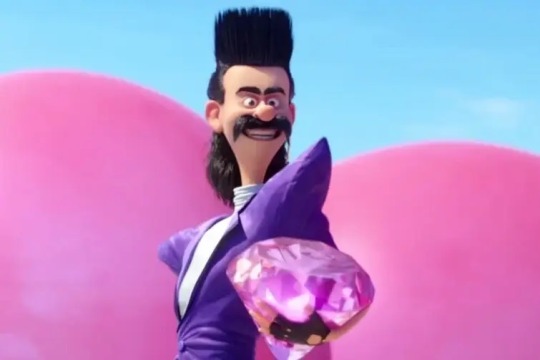
Brat had charisma and was a genuine threat and was present enough in the story that he was still necessary to the story overall because he and his diamond were the reason Gru lost his job and he and his brother did the heist to retrieve it. By the end of the first half of the film we knew that Brat was a washed up star that peaked in his childhood and was trapped in his nostalgia, and he had a fully fleshed out motivation and draw to him despite being rather simple that allowed us to indulge in his quirks. His pathetic nostalgic personality CARRIES that film because it’s funny and endearing and believable because we’ve all met someone like that.
But Maxime is not such a simple character by design because his motivations are relationship focused- and in this film they spend most of the time running away from Maxime, which is counter intuitive and lets us understand absolutely nothing about the guy. Because they didn’t delve deeper, Le Mal’s motivations were weak, and thus the overall STORY was weak. We don’t even know why he has such an intense hyper fixation on cockroaches that he would literally roachify himself and make that his central theme!!!
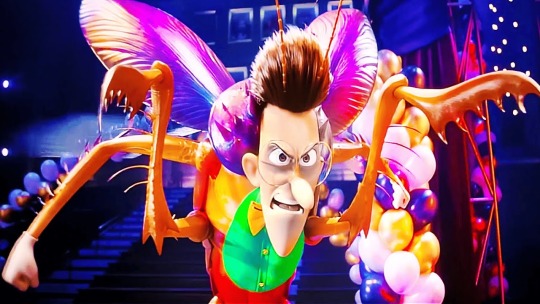
Why didn’t Lucy and the kids go to the safe house and Gru could stay to deal with his rival? It doesn’t make sense!!! And the AVL was doing nothing about the threat at all and instead was being ridiculous by giving the minions super powers? Ineptitude to the point of absurdity. What is the point of going to a safe house if they aren’t trying to resolve the issue and then Gru does it anyway?!!!!
Brain dead. Disappointing. On every level.
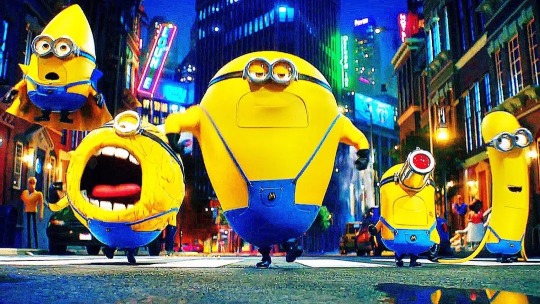
They didn’t even resolve the personal conflicts the girls were having, what with Margo having trouble at school and Agnes not liking telling lies! What was the point?!
The animation may have been pretty, but the plot was weak. The character motivations were weak because they didn’t expand on them. There were thousands of directions they could have gone with this film and they chose to go NOWHERE.
The best part of the film is the end, and only because we got to see Maxime be relevant for three minutes and it implies that they’ve managed to wrap up their implied but borderline nonexistent rivalry. And we got two seconds of Brat dancing way too over sensually to ‘Rule the World’ because it’s an 80s song (the power of character consistency)
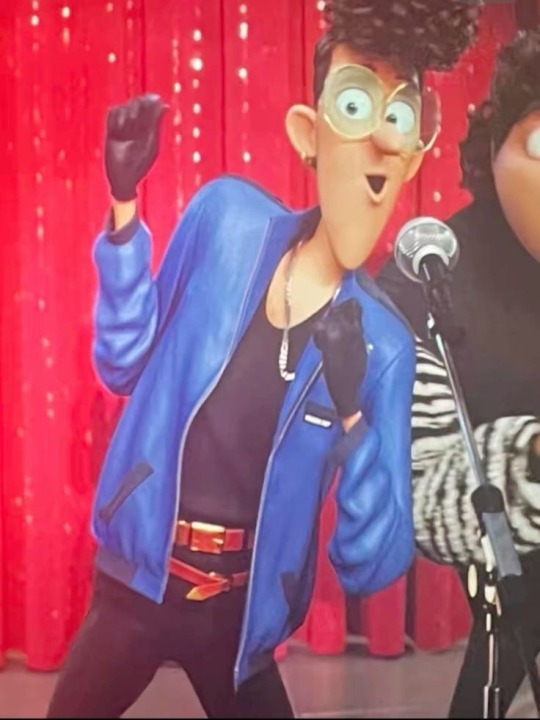
I don’t like hearing ‘ItS JuSt a KiDs FiLm’- NO. Pandering to children is not an excuse for bad writing in family media, and this franchise has been out long enough that it has an audience larger than just kids. Kids media and family media deserve better and should still have good narrative standards. Do not insult our intelligence by giving us content without purpose. It costs millions of dollars and months upon years to make a film nowadays, there is no excuse for not sitting down and coming up with a decent story direction and cohesive plan. A family film can be enjoyable for little ones and still have depth to it-
Family movies have been getting insanely messy lately with their story content because they think seeing characters we like regurgitated at us with good animation is enough to keep the company afloat and appease everyone, and it’s irritating. Dig deeper, have some respect for your craft. Keep our expectations high to keep us coming back!
I love the Despicable Me world and characters, but honestly this was such a disjointed film that it was almost hard to enjoy because I just kept waiting for something, anything to happen, and was utterly let down.
Maxime Le Mal deserved better as a villain, and this film deserved better. This franchise deserved better. Thanks for coming to my Ted Talk.

#despicable me#despicable me 4#maxime le mal#movie critique#movie review#felonious gru#movie analysis#rant post#dm4#despicable me 3#balthazar bratt
67 notes
·
View notes
Text
House of the Dragon did not understand Team Black

Hi! This is a follow up post I made about the characterization of the team green Targaryens and now I want to continue the idea explaining how the showrunners did not understand Team Black, or— speaking frankly– Fire and Blood and ASOIAF.
It’s well known that HBO wants to sell ASOIAF as a magical realism series (a literary or artistic genre in which realistic narrative and naturalistic technique are combined with surreal elements of dream or fantasy.) for grown ups, because obviously fantasy is made only for children (side eye). Clearly, that is not what ASOIAF, or in this case Fire and Blood, is. Sure, Fire and Blood may be written like a history book, but that doesn’t mean it’s intended to reflect simple realism. The style is immersive, designed to make readers feel like they’re stepping into the world of Westeros, as if they’re reading the same histories that characters like Jon Snow or Robb Stark might study or to say “This is the book Arianne Martell read and that’s why she compares herself to Rhaenyra!” The narrative is designed to deepen the experience, not to be treated as a purely factual, realistic recounting of events.
House of the Dragon presents itself as a gritty drama, it’s based on Fire and Blood, which is fundamentally a story about Daenerys Targaryen’s legacy and what made her different from the rest of her family. The show’s treatment of Rhaenyra and Alicent, in particular, seems to miss the mark. The show implies that the animosity between Rhaenyra and Alicent was entirely fabricated by the men around them, reducing the complex political and emotional dynamics at play to a simple misunderstanding. But in the books, we don’t need a Renly chapter to know he didn’t view war like Stannis did. We don’t need a Lysa Arryn chapter to know how deeply it affected her to have her child aborted. Their actions speak. You know the lyric from Taylor Swift “You are what you did”? Well, that really applies here.
Daemon, for example. The show’s decision to portray him as someone who ignores or mistreats his wives—especially with the murder of Rhea—is a significant change from the character in Fire and Blood. We don’t need to see him committing such extreme acts for him to remain morally ambiguous; his decisions and actions throughout the story are enough to paint him as a complex figure. We didn’t need to hear how he needed to realize he was not meant to be king. Over and over again, we needed to see him play the game.
The portrayal of Team Black, in general, is a big problem. Yes, they’re flawed—nobody in Westeros is perfect—but they’re also a family united by love and loyalty. The Targaryen family in Fire and Blood was often fractured, but Team Black showed a different side of the Targaryen legacy: a family that, despite their flaws, stood together—it was quite obvious the GRRM wanted to make them the “more Targaryen” team. And as I mentioned in my earlier post, Rhaenyra’s claim to the throne was legally solid–she was made heir by her father, oaths were made, she had the most dragons, the most heirs, more family members on her side and four out of eight great families were on her side (just to clarify, Aegon had two, Baratheon and Lannister). The narrative of Fire and Blood is about a woman who, despite being the woman for the job, faces an uphill battle for the throne due to the misogyny of her time.
Team Black is the “right side” in the Dance of the Dragons, not necessarily the good side, but the rightful side. Their cause is legitimate, and yet House of the Dragon asks us to sympathize with everyone—Rhaenyra, Alicent, Aegon, Aemond, and the rest. This doesn’t work in a narrative like Fire and Blood, where the characters’ motivations are clear-cut, even if they’re morally complex. In House of the Dragon, the show seems to want us to feel empathy for every character, which ultimately dilutes the central conflict. If everyone’s equally tragic or flawed, what makes Team Black’s struggle so important? This is not ASOAIF where we have multiple characters that are good opposing one another in some way or another. For example, Ned is seen as a good guy, and so is Daenerys, but she doesn’t like him, and that doesn’t make her a bad guy.
Team Black Characters are the heroes of the story, Rhaenyra is the hero of the Dance.
When one talks about heroes, one thinks of Superman or Naruto, good guys. But ASOIAF is famous because every character is flawed, even the heroes. In fact, a hero is not equal to a good person.
“As a literary device, a hero can be defined as the principal character of a literary work. The term hero has been applied, not only in the classical sense, but also in modern literature, as the principal character of a story, play or novel.” (Hero - Examples and Definition (literarydevices.net))
Rhaenyra is the hero of the story, Aegon is the villain. That is literally the story.
That doesn’t mean the story is plain or boring. They are humans. That’s what GRRM does best, and while I already talked about Aegon, let’s go with Rhaenyra.
From the beginning we know who she is.
“At the center of the merriment, cherished and adored by all, was their only surviving child, Princess Rhaenyra, the little girl the court singers dubbed “the Realm’s Delight.” Though only six when her father came to the Iron Throne, Rhaenyra Targaryen was a precocious child, bright and bold and beautiful as only one of dragon’s blood can be beautiful. At seven, she became a dragonrider, taking to the sky on the young dragon she named Syrax, after a goddess of old Valyria. At eight, the princess was placed into service as a cupbearer…but for her own father, the king."
"She was very proud and stubborn, and there was a certain petulance to her small mouth."
"Though Rhaenyra could be charming, she was quick to anger and never forgot a slight."
She is a typical princess, like Viserra or Alyssa before her, Rhaenyra knows her position well and is not scared of using her influence and power in her favor. She was raised in comfort and security, cherished by all. Later on we get to know she might have taken a few lovers, some hinted, some are theories, this is not about shipping (like Harwin Strong, Daemon, Laena) there was nothing anyone could do except for the king. And that is not wrong. Laenor and her might have been in an agreement that his parents didn’t mind, and neither did the king. The Velaryon boys were more than likely his. If the king didn’t mind, no one else should. That includes the queen. The show seems to want to make a bigger deal of the “bastard” issue, particularly with Alicent calling Rhaenyra’s children bastards. This, too, is a distortion of the story. In a monarchy, the legitimacy of heirs is decided by the king, and in this case, King Viserys recognized Rhaenyra’s children as his own.
In The Crown, Prince Philipp says “Currently I’m outranked by my 8 year old son” and Queen Elizabeth answers with “Yes, of course, he is the heir to the throne”.
Even in real life, it doesn’t matter how powerful a consort is. The heir outranks them every time. Alicent should have been shown as a smarter queen because Rhaenyra could have had her tongue for that. Rhaenyra’s children are not bastards. It’s ambiguous in the book because them being bastards were rumors from court, like the one Littlefinger made up about sleeping with Catelyn or Cersei’s about Margaery’s lovers; they were made by the opposing faction. But they were recognized by the crown, the king, the father, and the realm. So no, Rhaenyra’s claim was not sullied by her children. And no, she was not a bad person if her children were bastards. And no, it was not the same as Cersei. Rhaenyra is queen, so her line is the one that matters. The children from her second marriage are also heirs because of her. Alyssa Velaryon’s children from Rogar, despite being Jaehaerys' half-siblings, were not heirs because Alyssa is not the ruling queen. She is a consort, like Cersei.
Just as Aegon IV’s legitimization of his bastards went unchallenged because it was the king’s will, Rhaenyra’s status as heir should have been final.
The Dance is meant to have a hero who is flawed and a villain that has a reason.
But in House of the Dragon, we’re left to wonder who we’re supposed to root for. The show’s insistence on moral ambiguity and “grayness” across the board makes it harder to connect with Rhaenyra as the story’s central figure. There’s no room for her to be angry, to take action, to show that she’s not just a pawn in a larger game—she’s a woman fighting for her right to rule. She should have been shown as a more assertive and strong-willed character, capable of standing up for herself in a world that constantly undermines her. She should have moments where we disagree with her, but ultimately, the show wants us to empathize with everyone, but the show is missing the point. Rhaenyra is the tragic hero of this story—her flaws, her ambition, and her fight for power should be central to the narrative. The show seems to misunderstand her complexity, as well as the larger political context that defines her struggle. The Dance of the Dragons isn’t about a bunch of characters fighting for the throne; it’s about the consequences of a society that refuses to allow a woman to sit on the Iron Throne, no matter how capable she is.
Team Black Characterization
Let’s go back to Daemon. Daemon was loved as he was hated, so yes, he can be the internet boyfriend. He is GRRM's favorite character!
Said by the producer:
"Daemon would have let his brother fall flat on his face. In other words, aren’t all of Daemon’s moments, even the seemingly benevolent ones, ultimately self-serving?"
Hess replied: “I agree with you. He’s become Internet Boyfriend in a way that baffles me."
That was an obvious incorrect interpretation of his character, wherever you see it, but what baffles me is in contrast, the show doesn’t seem to hold Aegon accountable for his more heinous actions, like rape.
Before the marriage to Laena, Daemon’s passion for Rhaenyra was undeniable. Yes, their relationship was controversial, but like the romance between Lyanna Stark and Rhaegar Targaryen, it’s framed as a love story. Daemon loved Rhaenyra, and when he couldn’t have her, he "moved on." Just to be clear, their love story is a very important factor in each other's life, his marriage with Laena, him loving her, does not change it. Anyway! He married Laena, killed a man to be with her, and raised his children with her—Rhaena and Baela—who were cherished regardless of their gender or lack of dragon (in Rhaena’s case). For a time, Daemon raised his daughters alone after Laena’s death. After his marriage with Nyra, surely they had a time when they relied solely on him. He never sent one away. He kept them close. In fact! During the Driftmark incident, the girls were never there. He was the only adult who didn’t have any of his children involved.
Joffrey had run to get his brothers when Aemond took to the sky, and both Jace and Luke had come to his call. The Velaryon princelings were younger than Aemond—Jace was six, Luke five, Joff only three— but there were three of them, and they had armed themselves with wooden swords from the training yard. Now they fell on him with a fury. Aemond fought back, breaking Luke’s nose with a punch, then wrenching the sword from Joff’s hands and cracking it across the back of Jace’s head, driving him to his knees. As the younger boys scrambled back away from him, bloody and bruised, the prince began to mock them, laughing and calling them “the Strongs.” Jace at least was old enough to grasp the insult. He flew at Aemond once again, but the older boy began pummeling him savagely…until Luke, coming to the rescue of his brother, drew his dagger and slashed Aemond across the face, taking out his right eye. By the time the stableboys finally arrived to pull apart the combatants, the prince was writhing on the ground, howling in pain, and Vhagar was roaring as well.
Rhaena was sent to live in luxury during the war, and he never allowed them to get hurt or punished. The storyline with Laena and his twins are not a waste of paper, they are meant to show how much Daemon changed, we are meant to compare his treatment of Rhea (arranged by his grandmother) and Laena (marriage of love) and Rhaenyra (marriage of love and also the person he loved the most) He was charismatic and loyal, he loved his brother, we can assume he was on good terms with Rhaenys. Daemon evolved from a wild, impulsive youth into a family man and a strategic military leader, ultimately giving his life to protect his wife and demonstrate his loyalty.
As for Jace, he was never sidelined or ignored—Rhaenyra understood his role as her heir and supported him. Jace, full of youthful energy, was not just an heir but a skilled strategist in his own right, much like Margaery Tyrell, knowing how to play the game. He loved his family and fought fiercely for them until his last breath. Baela and Rhaena, Daemon’s daughters, were brave and intelligent. Baela had a dragon, but if Rhaena had one, she too would have fought alongside her siblings. The twins were clever and courageous, as we see in the post-Dance regency when they were still teenagers. Luke, too, was a strong character—great with a sword and a worthy heir to Driftmark. His death haunted his family until they all died, his death is the Ned Stark moment of the Dance. Joffrey was older, he was rougher than his brothers, and the most like Daemon, the three Velaryon boys were loved by Corlys AND RHAENYS. Aegon III was older too, and more than likely, he was Daemon’s pride as he had already lost one son, and it was his first with the woman he had fallen in love with years ago. Viserys should’ve had moments of childishness to show and establish his character since he is the ancestor of Daenerys.
Rhaenys’ character, in particular, was wasted in House of the Dragon. Rhaenys knew the game as well,if not better, than Otto. She was fiercely protective of her family and cherished all of her grandchildren. Her death should’ve reflected that! She should be shown having that arrogance and lack of patience the Baratheons had and show her as THE adult against the greens before Rhaenyra came of age.
Corlys Velaryon’s character was another missed opportunity. He should have been shown as a more morally complex figure—an ambitious man with his own secrets, including affairs, showing more why he was called a snake, show why he was intimidated by Rhaenys, show his love for his grandchildren but more than that, how much he loved all the power they would get. Explore how his wealth is influential, that was leverage, like Olenna held the power of Highgarden over Tywin’s head.
These characters are not just “good” or “bad”—they are complex individuals, each with their own motivations, flaws, and growth arcs. The show missed an opportunity to dive deeper into their relationships, their ambitions, and their internal struggles. The mischaracterization was painful to watch, how they handled Daemon/Rhaenyra, how they handled Daemon/Laena, how they failed to show Rhaenyra's most beloved friend and the reason why Jace, Luke and the twins were betrothed. And all of that happened because they tried to be "realistic" even if all that happened was honestly a parody of GRRM work.
Heroes should be well defined
Defining your hero and making it clear why they deserve the audience's loyalty is the foundation of any good story. A strong show knows its protagonist and ensures the audience is invested in their journey. Game of Thrones did this well, even with limited episodes. They introduced heroes and villains, built complex storylines, and made sure we understood who to root for, despite their characters’ flaws. House of the Dragon, however, faltered by trying to make everything morally ambiguous, blurring the lines of who the audience should support. By not clearly defining Team Black as the protagonists, the show undermined the emotional investment of the audience, making it hard to care about the central conflict. Instead of embracing the complexity that made Game of Thrones compelling, House of the Dragon failed to commit, leaving the audience uncertain of who to root for.
#a song of ice and fire#fire and blood#aegon iii targaryen#viserys ii targaryen#rhaenyra targaryen#house of the dragon#daemon targaryen#baela targaryen#rhaena of pentos#lucerys velaryon#jacaerys velaryon#joffrey velaryon#rhaenys targaryen#rhaenys the queen who never was#corlys velaryon#laena velaryon#THIS IS MY OPINION#this is not hate towards the actors#it's hate to HBO#I'm yapping#dont take this too seriously#team black#team green
60 notes
·
View notes
Text
“The Sniper Problem”
I have a favorite litmus test that I apply to just about everything I write: “Could this entire plotline be resolved by one sufficiently trained sniper?” The hypothetical sniper is there to evaluate the quality of the conflict I’ve set up. If they can resolve the whole thing by taking out their target then I… probably have some rethinking to do, because the test succinctly highlights a few key issues with any story that fails it.
First, the obvious: if the problem your protagonists are facing can be solved this way it’s probably just not as interesting as it could be. A conflict of “big bad evil dude does a big bad evil thing and our hero goes and mercs him about it” can make for a fun blockbuster action film, but the plot of those films are rarely–if ever–the point. Stories with a central villain stand to gain a lot of narrative depth from asking yourself what issues would linger if they were suddenly removed from the picture. What internal struggles might remain in your protagonists? How might the world around them still need to be changed or healed? Which elements or areas of the story just seem empty without the big bad to fill the narrative space, and how can we develop them?
The second facet of the sniper problem is an inverted Occam’s Razor, a call to ensure that there’s a good reason the protagonists aren’t just using a simple and direct route to solve their problems. It’s like how modern horror movies have to cripple the victims’ cell phones to justify everything else that happens, though ideally less contrived. When revising a story through this lens, it’s almost difficult not to improve it. It aids suspension of disbelief, lets your protagonists present as more competent, and gives them more to do outside of biffing people they don’t like which in turn showcases more of their personality.
A great example of all of this is Avatar: The Last Airbender. Throughout the show the bottom line is that our heroes are out to defeat the Firelord to stop the atrocities he’s committing against the rest of the world. So it stands to reason to ask, why not camp outside his house early on with an assassin good enough to score a quick or lucky kill? But the show answers this amply with just its concept, mostly without having to draw direct attention to it. If Firelord Ozai dropped dead in the pilot there would still be a whole Fire Nation pursuing his goals complete with other emotionally unstable royals and military officers. It wouldn’t actually… solve anything. “Defeat the Firelord” is just the mission that sets our heroes on the path they need to take to stop a war that’s destroying the world. The real solution is cultivating friendships across cultures, healing and maturing together, growing spiritually, protecting and empowering victims of generational violence, dismantling fascistic power structures, and ultimately even finding a relatively peaceful / humane solution to the problem of the Firelord. While they do call this out directly in one episode, they didn’t have to, because with the way they structured the narrative it was already evident. As a result of that good planning the characters got to do a lot of interesting, character driven, thematically resonant things and the show isn’t just one long and kind of dry martial arts training montage until they show up at the finale.
So keep the sniper problem in mind as you write! Or even as you read, watch, and analyze other media for what worked and what didn’t. I can’t promise it’ll be relevant to every story, but I can promise that it’s a quick and easy standard that’ll help you layer in a lot of nuance and flavor into your narrative.
64 notes
·
View notes
Text
I’ve started yet another run of New Vegas and the first few hours (up until Novac) really shine as some of the best world building out there. On top of that, the game design primes you for what to expect from the rest of the game without being too hand-holdy.
To start, the opening cinematic is so iconic and effective that I struggle to think of anything like it in video games. It perfectly shows off the chaos of so many factions vying for control in the Mojave before swiftly giving the start of the player’s story, which I absolutely adore. The beauty of the Courier backstory is that before that job it truly feels like you could’ve been anyone. Wandering prospector, NCR solider, Legion true believer, the freedom of backstory allows for a much deeper and more rewarding role play experience.
Starting with actual gameplay, the named people of Goodsprings all have something valuable to share. You get varied perspectives and philosophies on how to survive the Wasteland, commentary on the brewing Hoover Dam conflict, information on the surrounding area, and an opinion on how to deal with the Powder Gangers. It makes the town feel grounded and the characters deep. I adore how different skills allow you to convince people to help with the Powder Gangers, showing that while speech is a skill that helps you, it’s not the end all be all of interesting dialogue choices.
Following Goodsprings, the occupation of Primm provides much of the same experience as before with additional setting information coming from the NCR’s incompetencies and bureaucratic woes. The great part of New Vegas’ world building is how it loves to show. No NCR soldier says “the NCR is so big that any decisive action has to wait for miles of red tape to be cut, and we’re so far away from the stronghold of power that even though we should be stronger we just can’t get enough of anything out here”. Instead they complain about their job, they talk about missing California, they lament how boring their days are even though there are things that could be done. You feel this especially at the outpost.
But before moving on let’s focus back on Primm and the Sheriff decision. This is one of my favorite choices in the game. It shows how thoughtful the game is with the three decisions and is an early indication of the shades of grey the story likes to dwell in. Does Primm lose its independence for the security of a large state? If they stay free, do they trust a man with a history of abuse of power, or do they leave their fate to a robot who can follow a program but not much else. The beauty of these choices lies in the role play that you can do to come to each decision. For this run I decided to go with Primm Slim because my character was so annoyed by Beagle that she tunneled vision on how funny it would be to put him beneath a robot. But maybe you’re playing a hardcore legion run and wish to stretch the NCR thinner, or you could align with Meyers sense of frontier justice, or you’re a scientist who believes in the cold calculating logic of a robot.
The final thing I’d like to touch on is Nipton. Oh my god, what an introduction to Vulpes and the Legion. The brutality on display and the way Vulpes speaks of it tells you everything you need to know about their ideology and their goals. The insidiousness of leaving a single survivor to tell of the horrors, the severe punishment for partaking in vice, the hypocrisy present in the joy of their slaughter compared to sins of the town their punishing, it’s all perfect. And I love how you can choose to take them on, but it feels like you’re hopelessly outnumbered. And even if you do take out what is there, on the other side of the Colorado is an army preparing for war, so what good does it even do. But it doesn’t end there, because when you tell the NCR of what has happened, they just talk about how hopeless the situation is. You experience firsthand the central conflict in a microcosm: despite the very serious threat the Legion poses to everyone in the Mojave, the NCR just isn’t in a position to take them on, so what needs to be done about it? Does the Mojave trust that the NCR can win the war, do they comply with the Legion and hope for the best, do they rally around the immortal computer that has at least New Vegas safe, or do they forge their own path and navigate the treacherous road towards self sufficiency and independence?
By the time you arrive at Novac your character has had time to think about their past, the Mojave’s present, and what can be done in the future. The world is a scary place with real threats, but it’s also filled with kind souls, and wacky occurrences.
To summarize, Fallout New Vegas has so much on its surface that it wants to share, all of which is amazing. But it used its mechanics to let you embody a role, and grapple with what lies underneath. I’ve gotten a lot out of this game since my first play through as a 13 year old boy, and I still get a lot out of it a decade later as a woman.
22 notes
·
View notes
Text
felix's real personality behind the scenes
based on tarot. i do not know these idols personally. energies are always changing. what i say is NOT straight fact. pls take it with a grain of salt!

+ so the central theme for the first part of the reading, was the word “healing”. this is sweet actually, since i do think a lot of his public image is also tied to that, and it does appear to be a genuine part of his personality.
felix is a person who can have a profound impact on people, in a way where he just soothes them quite naturally. his presence alone can have that calming effect. there's a lot of gentleness to his energy. he's someone people would want to seek out when there's chaos and stress in their life, and they need a source of comfort and positivity. he enjoys giving that to people, and being that type of existence for them. it fulfills him, and can make him feel better about himself.
the stray kids member is the type of person who, instead of being relentlessly competitive and drama-prone, chooses to connect to people in a close manner. he's someone who truly doesn't enjoy drama and conflict.
felix wants to put himself into other people's shoes, genuinely empathize with them, make them feel validated and understood. he usually isn't a person who feels the need to selfishly put himself above anyone in order to lift himself up, or sees people as competition somehow. he just isn't the type who'll consciously choose to fight you, if he can befriend you instead. definitely an “everybody's darling” type of energy.
however, what's definitely worthy to note.. his softness does not equal weakness. on the contrary; felix is someone who's much more masculine and bold than some people might think. he isn't an easy target or pushover, and is in possession of his strong opinions he won't budge away from. if he feels strongly about something, he will not be the type to surrender that easily. in fact, he's very passionate in his autonomy.
i kept getting this feeling, that he's just amazing at wisely picking his battles, and acting with clear intention. although i do see him having his explosive moments, that definitely might catch some people off guard sometimes, considering the duality that's present here.. i don't really see him being a person who allows himself to let loose at the wrong time. i don't see him being someone so overly impulsive that he steps on people's toes, or crosses lines he shouldn't cross.
he's still got a tight enough grip on his emotions, that he's capable of staying conscious of when to let them bubble to the surface. if it's justified and he clearly feels like he's in the right though; you're likely to see a different side to felix, that's much more opinionated and dominant than you think.
this man just has amazing tact, and knows when to let out different sides of himself. he knows who to be more submissive towards, and who he can be more commanding with. he knows how to behave according to what benefits him the most, and which behavior will be to his biggest advantage. some people could look at this as selfish, and see it as more of a yellow flag. the lines are a little blurred here.
felix will be the sweetest and most generous person in the world, if he feels like you can help him out in some manner.
if there's someone who knows how to network in this business, it's him. i wouldn't be surprised if a good amount of his deals are a result of people just genuinely liking him as a person, and almost feeling this desire to return his kindness. (i'm not downplaying his talents! but he just gives the industry's darling too, which i saw in my jyp reading as well)
i can see him doing things like giving gifts, and being of service, or just extra nice to some people in power, who can give him the opportunities or attention/clout he wishes for.
he definitely can have his materialistic and opportunistic tendencies, which again, is likely to be more blurred in terms of “green and red flags”
he's just very clever and strategic, as well as more calculated than what meets the eye. he knows exactly what he's doing when sweetly smiling at you; he knows what effect he has on you. he's someone who charms people like it's the easiest thing in the world, and knows how to make use of his appeal.
- so, emphasizing this again; felix isn't stupid, he's very smart. he isn't a fool, he isn't the naive and innocent angel that he might portray himself as at times.
he's good at detaching himself from people.. the type that makes you feel like you're close to him, when you probably only know like 15% of who he actually is.
he's great at hiding away several parts of himself, especially the more “negative” ones. meaning, he usually disguises e.g. his negative opinions on people behind an agreeable smile, holds grudges deep down he probably won't tell you about, if he feels like it'd ruin the image you have of him. if felix openly and straight up tells you he doesn't like you, it's probably because he doesn't really see any use in being nice to you.
in addition, i can see him weaponizing his kindness at times. going back to the insights for the green flags, he is someone who's genuinely sweet towards many people.. however, some of that does come from him wanting to earn something and benefit from those acts of service.
if you end up in an argument with him, it's likely for felix to throw those acts of kindness into your face, and guilt-trip you for being so ungrateful. he's amazing at making you feel like an awful person. he was being so nice to you, and you're doing him wrong like that? felix is definitely someone who's great at manipulating narratives to his own advantage, and making himself look like the good guy in most scenarios.
he's for sure another idol, who i'd add to the list of “i suggest not fighting him” unless you wanna see a completely different side to him.
it's highly likely for a colder and less considerate side to come out, once you manage to rile felix up, and he feels done wrong by you. he can get very defensive, and quite ruthless and harsh, especially verbally. more cut-throat than he usually is.
i do think a lot of this comes from “i will hurt you before you can hurt me.” deep down, felix seems to have some unhealed wounds, especially in terms of his self worth.. this can lead to him becoming extra defensive if he feels like you could potentially rip off the bandaid, since he's still trying to heal.
note; this is lowkey making me sad, since.. many of his green flags were about healing and helping others, making them feel validated. it's almost like, he wants to heal others, because he can struggle healing himself.
i have to add, i do believe he cares more than he'd like to admit to himself, especially about people's opinion on him. again, i just don't think he wants to, since it can consume him a lot.
felix is someone who needs validation, and wants to feel like he's some sort of use to people in order for him to feel worthy.
the stray kids member is the type to overcompensate because he can quickly feel inadequate for people; especially when it comes to his work. i can see him being obsessive about his craft, his public image, his reputation. he seems to struggle finding real satisfaction, and can often pour way too much of himself into his work out of this fear that he isn't enough.
he's the type of person who's better at recognizing the things he lacks, rather than acknowledging his abilities, or the high place he's at. it's like.. something's always lacking, it's never truly enough. he can get very thirsty in terms of his career.
i do think a large part of this, comes from a lack of genuine and substantial self-love, without all the glamour and fame. he sees himself at his most lovable in work- and idol-mode, and can quickly feel like he's of much less value outside of that.
i can also sense him easily feeling like he doesn't have much to offer, outside of his more superficial qualities. like people wouldn't like him the way they do, if he wasn't in possession of his good looks, his money, his status. this can result in him getting pretty obsessive over keeping those things in check.
this is something i've seen in a few idols now. it's almost like fame can turn into this.. type of drug almost, that gives you this high, which you always end up chasing. a lot of idols realize, especially later on in their careers, that so much of that is just empty. it's a shallow type of “fulfillment” that looks nicer on the outside than it actually is. but once you're there, it can quickly turn into something you still can't get enough of.
#kpop tarot#stray kids tarot#can we all agree that he's giving libra rising#would put his sun and perhaps mars in the 12h#and venus in 1st
46 notes
·
View notes
Note
grrm* kills off sansa’s direwolf in the first half of book one, gives her her mother’s tully looks, has her being referred toas “little bird”, has her follow the seven instead of old gods, has her marry a lannister, disinherits her from winterfell, has her learning SOUTHERN + politics with LF, doesnt make her warg*
stansas: the red wolf is MY queen in the north because it happened in that abomination of a season.
Ahm. I might be in the minority in this side of the fandom because i don't actually believe grrm killing Sansa's direwolf in agot was meant to be a symbol of her being cut off from the north as opposed to her siblings, idk. Like if you want to see it that way you can of course, but this angle does feel simplistic and kind of boring to me.
The reason Sansa is highly unlikely to end up as QINT is not that she's not "northern enough", or that she's "too southern" imo (what does that mean anyway, these are pretty vague and slightly ontological statements which don't really fit into grrm's vision of Westeros imo). It's not even that she's not "magical enough". The reason is that she doesn't have a ruling arc. That's not to say that she doesn't have a political arc, she does, specifically that of a courtier, a political advisor if you will. I would really like to see Sansa in control of her life and an active player exerting actual political influence. But a savvy and cunning political advisor is not a ruler, because while the arc of a political advisor is primarily inspired by the themes of political power as a means of survival and influence (very individual-centered) a ruler needs to have a broader (collective) scope, a vision and a mission which exceeds both their personal interests and the pragmatic limitations of their rule. It's not that the characters who have a ruling arc in asoiaf are never confronted with these pragmatic limitations, on the contrary, the conflict between the ruler's vision/mission and the practical limitations they face is at the heart of the "ruling is hard" premise, which is so central in asoiaf. But you do need the larger visionary aspects to be present if you want a ruling arc to feel meaningful and substantial for the reader of a high fantasy narrative such as this, aka you need someone who 1) has somehow been chosen by their people (yes even in a pseudo-medieval setting a ruler can be chosen), 2) based on specific attributes this person has (their particular skill, disposition, character, determination, bravery and most importantly their vision), 3) in order to face a specific task at hand that is particularly challenging. As I said, the originality of this work is precisely the fact that these characters who would be textbook one-note heroes in any other high fantasy narrative, are really struggling in their role here, face conflicting situations and sometimes fuck up because they can't align their abstract ideals with their reality. Ruling is hard, we get to see every aspect of this in a story that values realism and internal conflict ("a human heart in conflict with itself"). But we shouldn't get side-tracked by the pragmatic elements of the story and confuse an arc centered around survival and individual ascension to power with a ruling arc. A ruling arc in that context is not just about the specific character's survival or well-being or growth (unlike what fandom often believes), because ruling is not a reward for individual struggle, it is not a prize, it is not a token. A fulfilling ruling arc is about what the characters can do for others, what they do for the world around them, what they want that world to be, how they try to implement their ideals and contribute to a structural collective change. "We must fight the good fight". This is high fantasy with strong romantic traits, it's not Succession and it is not Magnificent Century. It is definitely not Game of Thrones, a show that treats its characters as mere players in a fight for survival and domination, while completely erasing the progressive, even revolutionary political aspects of some arcs in the book. In Game of Thrones, it's only fitting that it is in fact Sansa who becomes QINT. She struggled, she suffered, she won, great. It's all about her. There is no large, collective scope to be found here. The characters that had that scope were shown to be delusional and got punished for it.
But in the book, these core elements of a ruling art are just not present in Sansa's arc and I don't see them being present in the future books if we ever get them. And that is why she's not going to become QINT, not because of her dead direwolf or the color of her hair.
Last observation: I am talking about a fulfilling ruling arc (fulfilling for the reader), and this might raise some questions. Yes, in a story that values realism and internal conflict, characters don't always get "what they deserve" in universe, and their arcs can't necessarily be considered "fulfilling" from an extradiegetic perspective either. There is nothing particularly "fulfilling" about Rob and Cat's fate from the outside, and they definitely don't "deserve" what they got in universe. So it is true that character progression doesn't necessarily need to be "fulfilling" in the sense of "satisfying". It does need to be meaningful and coherent though, and it does have to serve as a vehicle for a broader message. That's what I personally qualify as "fulfilling", "earned" or ""deserved". There was a reason why Cat and Rob had to die, this didn't happen randomly just for shock value. In the ruling question, yes, characters will not end up as rulers in the end just because they "deserve" it for being decent and brave people (ruling is not a reward). That is true, things don't work that way. But the one that ends up as a ruler will not just get there randomly, while the characters that were preparing themselves for that role in universe end up dead, just because "realism" or "subversion". Their role and final position needs to hold meaning, it needs to feel truthful and substantial and make sense. This is a fictional world, things don't just happen just because. The author didn't spend thousands of pages showing us characters struggling to rule at a very high personal cost just to cast them aside in the end because "nobody gets what they deserve oops sorry". That's just a cheap Game of Thrones cop-out.
tl;dr: yes Sansa is not going to become QINT but not for the reasons you mention.
#anonymous#asoiaf#aspa rambles#again#This was actually pretty difficult to write with my level of English I do hope the words I use make sense 😬#This ask has been sitting in my inbox for a solid year
33 notes
·
View notes
Text
Eternal Sorrow and Immortal Light
My V8 au story part 1
⚠️Male Astra and bisexual Tromp⚠️
"Our Origins and Beliefs"
- "We Can Define What It Means to Be Human"
This piece may contain elements that could cause discomfort, including but not limited to war, survival, and ethical issues. Style: Cyberpunk, with a touch of post-apocalyptic.
Our goal is not to incite panic, but to let you know that ten thousand years later, human civilization still exists, and our history continues to move forward. Please live on with hope---from an unknown android.
Year... Year 9085.
At that time, Astra had not yet been born. If he had been born the day before the Fracture Day, perhaps this would be a different story. He might have screamed and run away, each step swift and fierce.
But at this moment, he was just watching through a pane of glass.
On a planet in the Aquila Rift, a sandstorm was raging across the vast desert of the uninhabited zone.
The yellow sand held no memory of any conflict, for it had nothing to do with civilization or stories. It only repeated the cycle of stirring up storms and then settling, burning each grain of sand until it was scorching hot. Beneath the dust, a long-collapsed massive structure lay dormant.
The triangular emblem of the United World Council, composed of stars and laurels, was worn and broken by the sand, revealing its former purpose: the United World Parliament. Two thousand years earlier, this place had been filled with people from all over the world, nervously discussing matters of survival. Now, only silence remained.
The sun rose, and the sandstorm ended. The emblem emitted a desolate glow under the pale sunlight. Now we could see the date on it: December 15, a winter day when red snow fell.
Going further back, that was the day humans left Earth. It wasn't due to extreme environmental degradation or any other crisis, but simply because humans, having reached a certain level of development, no longer wanted to be confined to that small patch of blue sky and ocean.
The massive spaceships arrived at the Aquila Rift, and the Rift Pillar, with a one in ten billion probability, gave birth to a habitable planet. Thus, the seeds of human civilization were sown and took root here.
But... something unexpected happened. On that day, flesh-and-blood humans suddenly disappeared, vanishing without a trace, leaving not even a fragment behind in the universe. No one knew what had happened, just like the sudden burst of a festive balloon in a distant, fuzzy memory.
Later, the androids who replaced humans referred to that long-forgotten event as the "Fracture Day." Like a rotten rubber band, with a snap, history was severed from the present.
Thus, those tall beings with golden blood became the new "humans," standing on two feet in the universe. Their civilization was highly advanced, and in the wilderness of space, the new humans, armed with advanced weapons and vehicles, were invincible. To them, the stars were like grazing fields, where they could gallop and collide freely.
Long ago, a writer said that one person was enough to change the world. Not long after, Astra was born into the world, named after the stars. But he disappeared at birth, on a day of high-voltage malfunctions and thunderstorms. Everything about him vanished into the vast sea of data.
Later, a cloaked stranger burst through the outer gates of the city. He leaped into an unregistered aircraft and, amidst a pulse of lightning, flew into the endless night, breaking through the surveillance and plunging into the central pillar of light that forever emitted a blinding glow. Like a moth, he disappeared into the high-temperature energy.
The stranger's eyes, which last saw the blue sky, became his eternal eye color. Like the cold winter when he made his final act of redemption, he gradually grew cold and was embraced by darkness.
In the silence, his ears were pierced by noise, and in the discomfort of pressure differences causing a throbbing pain, he saw distant, blurry figures calling to him in the light. He couldn't feel their presence, as if they were untouchable particles from a higher dimension. His coordinate-based navigation system failed.
He only felt their gazes meeting his, all of them silent. He sensed their great existence, their silent breaths rising and falling evenly in the darkness. A complex mix of emotions surged within him: resentment, pain, sorrow, suppressed anger, and then the pull into a black hole-like silence. He couldn't understand what the particles were saying, but he understood the last sentence.
"Come back, Astra. Come back, Astra."
"We are waiting for you."
He remembered. His name was Astra, a cold yet burning star.
Just before he opened his eyes again, he dreamed of a damned joke. A computer said, "I am God. Let there be light," and there was light. "You must go and shine." As he tried to sit up, he was yanked back onto the operating table by heavy wires, followed by violent vomiting, expelling a mass of black, sticky, disgusting matter.
"...Ugh."
But Astra didn't vomit again. He raised his hand and saw pale skin with faintly visible wires, and small blue and orange lights flickering at his joints. He was tangled in wires, struggling to break free. Astra groaned in discomfort, trying to move more of his body.
"Hey, hey, don't move around!" Suddenly, Astra felt a tap on his forehead, and for some reason, he obediently lay back down.
He looked at the smiling figure before him. For a moment, he lost the concept of "human." The figure's gender was indistinguishable, with a smiling face, black hair loosely braided into two strands hanging on either side, wearing a wide-brimmed hat, and emitting a faint smell of chlorine.
The figure leaned over, seemingly checking Astra's condition, then nodded in satisfaction and giggled. "Perfect, absolutely perfect. I thought I couldn't fix something like you with a nearly shattered core, but it turned out to be a piece of cake!"
The figure tapped Astra's forehead twice, and he felt a rumble in his chest before a faint light appeared. Suddenly, he regained his strength and sat up abruptly, the wires behind him retracting and slithering back into a massive machine.
"Well, let me tell you, normally I'd charge a fortune for this kind of work, but you're as poor as a wild man, so what can I do? What can I do?" The long-haired figure continued to smile. "Oh well, let's get you cleaned up. You stink."
The figure took off a dark green cloak and tossed it onto a chair. Astra thought it must be a woman, as she was wearing a black cheongsam with naturally developed breasts. Humming a tune, she brought a basin of hot water, squeezed in some fragrant substance, and began washing Astra's hair.
"Who are you...?"
"I'm Tromp," the figure laughed. "But everyone calls me a tramp because I wander around all the time. Honestly, what tramp is as clean as me? People are blind. Oh, you were injured, so I brought you back and fixed you up."
"...I was injured..." Astra suddenly felt a sharp headache. "When... no, why can't I remember what I did before?"
"Don't worry about it if you can't remember," Tromp said, wringing out Astra's hair. "There's no point dwelling on the past. Look to the future. You just vomited all over the place, so clean it up yourself. Then you need to eat something. I don't want you to starve to death right after I fixed you."
Tromp left with the basin, tossing Astra a rag before she went. Astra silently took it and cleaned up the mess he had made. A while later, Tromp returned with a few things that looked like chocolate bars.
"Sorry, I forgot to buy food today," Tromp paused. "Make do with this."
Astra took the bars and stuffed them into his mouth. They tasted of cheap industrial sweeteners and compressed dried fruit, not entirely unpleasant. He chewed a few times and swallowed.
"Why are you staring at me?" Tromp suddenly turned around. "You can't stay here. I don't have room for you. Oh, here's your clothes. I washed them. And don't just wear this; you look like a street pervert."
Tromp handed Astra a dark blue cloak and threw him a black turtleneck sweater and simple work pants.
Astra shook his head and walked out the door. Outside was a rooftop. He slowly walked to the glass railing and looked into the distance. The light made it hard for him to keep his eyes open, but once they adjusted, the sharp, towering structures pierced his vision. Black and dark green skyscrapers loomed, with orange fluorescent tubes and neon signs deeply embedded in the darkness. Above, ground-based searchlights scanned the endless void. Below, blurred figures moved silently in the chaotic light.
His gaze traveled further, where the buildings were more angular, with spiraling aerial roads winding around the metal monsters. He could see dense, fast-moving lights, vehicles speeding through the city center. Then his cloak was caught in a strong gust of wind as a massive aircraft flew by. The ring-shaped propulsion system, rapidly flashing indicator lights, and the dull blue fuselage suddenly felt familiar.
In the distance, a glowing pyramid, perhaps the city's energy center, emitted a massive beam of light from its peak into the dark sky, slowly fading into the cold heights.
The hot air from the aircraft quickly dissipated, replaced by a biting cold. This city, where nighttime temperatures dropped to minus twenty degrees, would slowly freeze the noise and chaos of the day. Even in daylight, the sky remained an endless darkness.
He looked down at his reflection on the smooth ground. It seemed like the first time he had seen what he looked like. Backlit by the dim light, his blue eyes shone brightly, his eye sockets deep. He saw his sorrowful expression, thin lips turned downward, his gaunt frame, and his slightly damp black hair twisting wildly in the wind.
The door behind him suddenly opened. Tromp leaned against the doorframe, looking at him and suddenly laughing. "I forgot, the curfew in this area is about to start. Come in. I can't kick you out today. Sleep well."
Astra didn't react immediately. He just stared at Tromp, feeling that this person seemed somewhat familiar. He thought Tromp might not be an ordinary figure, but no one living in this area was doing particularly well. Maybe he was overthinking it.
"What are you doing? Come in, haha."
So Astra followed Tromp inside, and the door automatically closed, shutting out the city's cold gaze.
He actually wanted to sleep too.
#incredibox#incredibox fandom#story#fanmade#fan novel#incredibox v8#dystopia#cyberpunk#incredibox au#incredibox dystopia
18 notes
·
View notes
Text
Leo's character design is one of my favorites from The Next Chapter's main cast, as it accurately reflects his character and the new series in an appealing way. Let's analyze it.
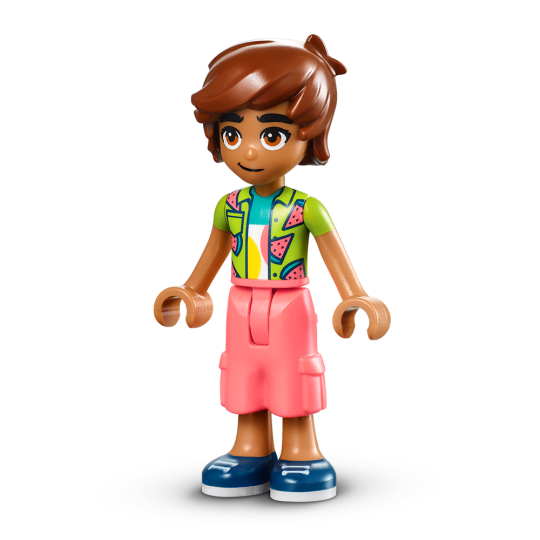
Starting with the colors, the design's most prominent ones are tan, green, and pink, loosely following a split complementary color scheme. Tan is a versatile ingredient here: it conveys Leo's kindness and dependability, its association with the outdoors reflect his athletic hobbies, and it's visual shorthand for him being Latino (if you're concerned about all Latinx Friends characters looking like this, Leo's little sister and abuelita have diverse skin tones and hair colors). The green on his shirt reinforces his kindness and connection to nature while introducing a positive, lively color to the mix. It all comes together with a generous helping of watermelon pink, tying into his overshirt's motif alongside the green. It associates Leo with lighthearted summertime fun and all but yells at the viewer that Leo has a sweet personality. Already, this color scheme is giving us solid and informative visual design.
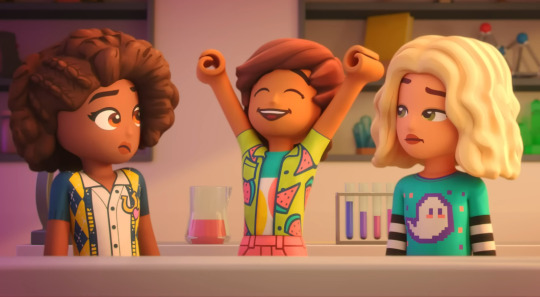
It also hints at how the rest of Leo's design plays with traditional gender expression. While an overshirt and cargo shorts typically read as men's clothes, the colors on said clothes say otherwise. His hair is just long enough on the sides and back that you could put it on a female minidoll and pass it off as a messy bob cut, and he's the only male Friends character with visible eyelashes. This balance of masculine vs. feminine is Leo's core conceit.
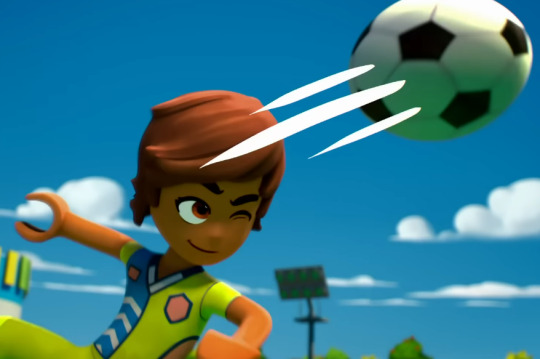
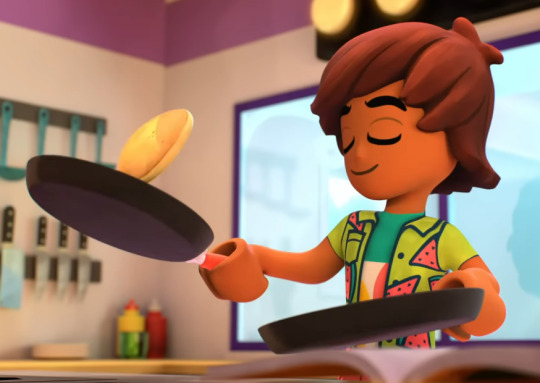
His key art, one of the first things a child would see on a Friends box, conveys one of Leo's central conflicts though his body language. While he might be smiling here, notice how Leo keeps his legs close to each other and arms inside his silhouette:
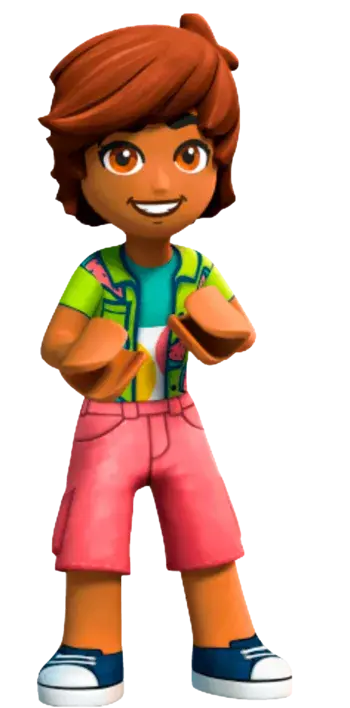
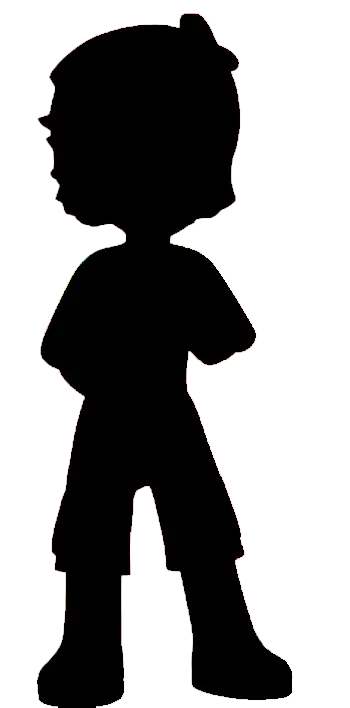
It suggests apprehension despite Leo's friendly demeanor, like he's keeping something to himself. Sure enough, that's exactly what's happening: Leo is hesitant to share his baking talents in the cartoon's pilot, and in some episodes, he learns to be more open about his thoughts and feelings.
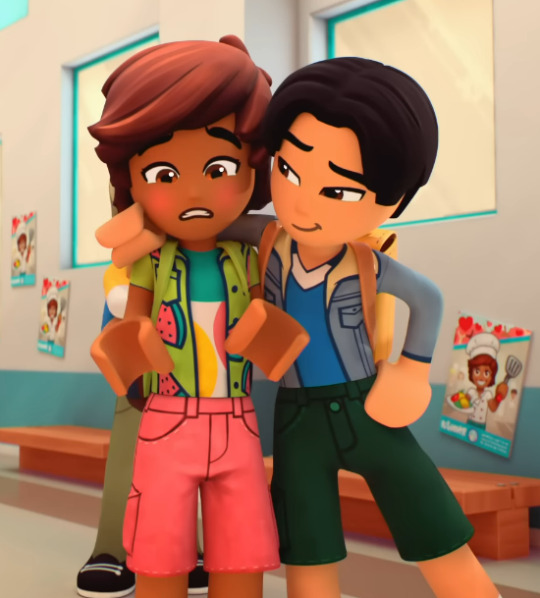
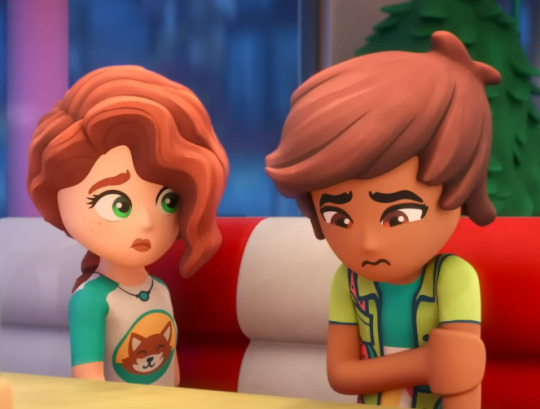
Having a distinct personality is crucial for characters in Friends; character interaction is part of its appeal, and not everyone will watch the cartoon or read the magazine for further context. Yet through Leo's design alone, a child with no prior knowledge could get the gist of who he is, what he might do in a set, and what conflicts could arise between him and the other minidolls.
That's all fine and dandy, but what does Leo's design say about The Next Chapter?
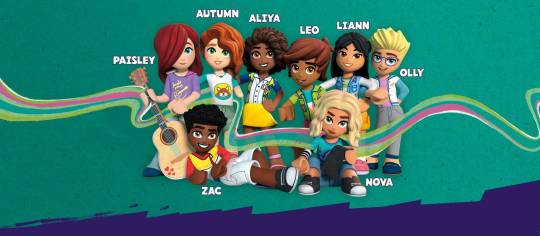
In an interview with Brickset, the Friends design team explained how the relaunch represented all kinds of young builders. This included boys who wanted to try Friends' relationship-based play but might have felt alienated by the original run's presentation.
Leo's design fulfills two of The Next Chapter's objectives in a single minidoll: representing diverse ethnicities (he's the first Latino main character) and representing boys in the main cast (alongside his comrades Zac and Olly). While the trio explore masculinity and femininity in their own ways, Leo strikes me as the perfect middle ground: his design has more masculine elements than Olly while being more outwardly feminine than Zac.
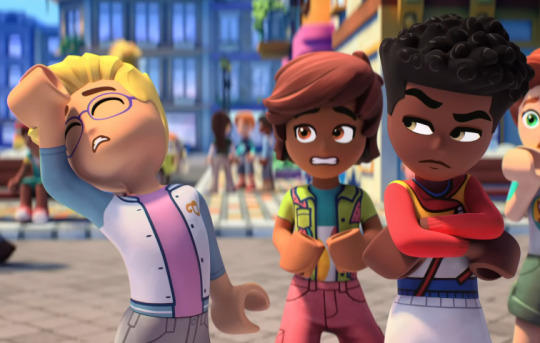
This balance makes Leo an excellent choice to sell Friends to a new demographic while staying true to the theme's feminine foundation, and if you don't believe me, believe the marketing. When the whole octet isn't needed but a boy is, Leo is often the series' rep. LEGO Channel's old Roku icon deserves a shout-out, as it juxtaposes him with Captain America and Spider-Man in front of a neon electricity backdrop; he's the only Friends rep in this mostly masculine image.
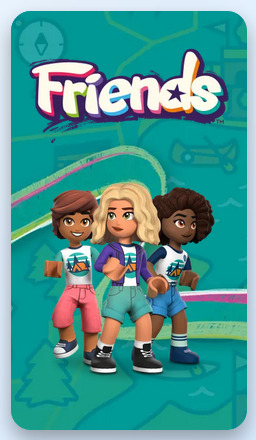
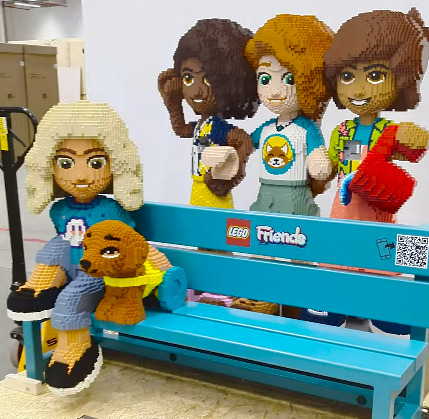
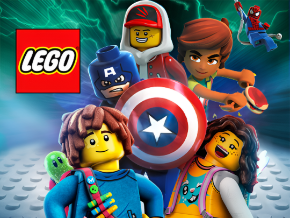
While I'm past the age range of The Next Chapter's core demographic and can't speak from firsthand experience, I'd be shocked if Leo wasn't resonating with boys at all. With how well the character design's fundamentals convey his personality while reflecting masculine and feminine traits, I'd say his place in marketing alongside the relaunch's actual mascot, Aliya, is warranted.
Friends sets are fantastic. If Leo helps more people build and play with the sets, even better.
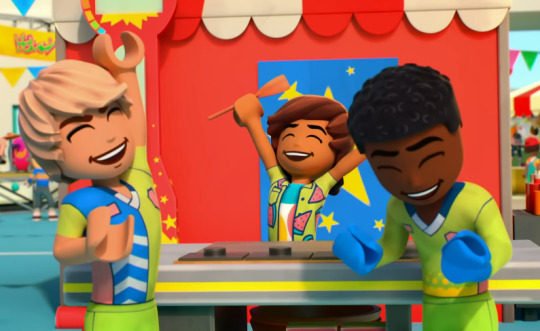
Author's Note: Thanks for reading my first character design analysis! Friends is one of my favorite themes to dissect because of all the details and emphasis on characters, plus it's great that more people are being represented through the minidolls. Making this essay was a journey and I've learned a lot so far, and I can't wait to learn more.
Comments, critiques, and requests are all appreciated. The next analysis probably won't be about the same theme for variety's sake, but I'll certainly talk about Friends in the future.
33 notes
·
View notes
Text
I have a lot of conflicting emotions over the finale for Fifteen and this season overall
***SPOILER TALK AHEAD***
So I feel like there’s a bit of interesting that has been presented in this season. Particularly the continuation for the Pantheon, getting to see Midnight again (and the Entity, who I’m starting to suspect might be a God of Doubt). The BEST episode of the season was “The Story & The Engine”, at least for me, as it hit on something that I found deeply personal and a lot of that came across in the acting by Ncuti and those who were in the barbershop. I even found interest in “Wish World”, simply because of the concept of having a world shaped by someone who has such a limited view and would rather keep certain things, people, concepts out of sight, out of mind, and how a world like that would look, it was for sure interesting.
But there are so many cracks in this season.
For the most part, I think I liked certain connections we got to have with the more central characters within the stories framing for the episodes I would consider filler (“Lux”, “The Well”, “The Interstellar Song Contest”). I already stated it, but I loved “The Story & The Engine”, how it speaks to the experience of black community, to feel so welcome and safe in certain spaces of a world that has treated us so terribly, and want to give a shoutout to Inua Ellams and Makalla McPherson for this episode.
I also want to say I was genuinely surprised we didn’t have to have a full episode of seeing black and brown people mistreated in a Jim Crow-era setting, while still acknowledging that this is still the Jim Crow-era South, but like I get where people find issue that there wasn’t more delving into that when you have a black Doctor and a brown companion. Personally, I wouldn’t have wanted to have to see that and was about to turn the TV off when I saw the lady bring the cop in cause there’s a certain amount of black trauma I just don’t want to have to keep experiencing in the media I consume, especially when it comes at the hands of white writers who would handle it so poorly.
But that brings me to my next point: RTD should never, EVER, have his hands on black and brown people in narrative again. Because it is so odd that this whole season, him running into Belinda who looked just like her descendant Mundy, who has a certain intelligence and agency, who is outspoken and firm, all these things…to then have it all be to lead her down a Babies Ever After route. That she was put in his path ultimately to have a daughter (sort of).
It all brought me back to how terribly handled Martha Jones tenure was handled, the saving grace being her exit being handled a mote better than her time as a companion as a whole. Like at least Martha got to do something I guess in her departure episode? At least the agency of her leaving was put into her hands, ultimately, and even that is still not enough for how dirty she was done in her season.
But Belinda…her being either locked into a persona for most of the two part finale, to her being locked into a room where she was not a part of any of the action, and her entire reality being rewritten in order to settle back into motherhood for a version of a child that never actually existed in this format. It’s…like it’s ODD. And all done for the chance that the doctor could maybe have a child (ends up not being his in this NEW new reality).
It’s also just so odd to have pulled Ruby back in to play a more significant part in these episodes for a total of three episodes, giving her a spotlight that should’ve been Belinda’s. Not to say I don’t like when a companion returns, but this was a bit much regarding Belinda having a little more than half a season, since NuWho is now given only 8 episodes per. And part of her being so narrative focused being to introduce this incel white man who is used in the machinations of the greater scope villain of the season to rewrite reality into a narrow view world, and then to give him a happy life to…fix him I guess?? From ever having been the tool that he was???
Then…there’s the Rani. I fucking loved whatever was going on with the Panjabi!Rani regarding aesthetic, personality, just everything about the way she carried herself was incredible to me…except for her worship of Omega, as it seemed to be. I think I would need to go back and deep dive into Classic Who, but the Rani has never been about having anyone over herself, simply doing sadistic experimentation for the sake of domination, and you do get a glimpse of that here. But it for sure still feels like she was simply working within the goal to bring Omega back to power.
I would tempt reading her motivation as another grand experiment of hers, because I do feel that there are certain cues in the plot that point to that, so I try not to get too hung up on that part. What I am hung up on is Panjabi!Rani being killed while Mrs. Flood!Rani continues to exist when??? It should’ve been the other way around!! IT SHOULD HAVE BEEN THE OTHER WAY AROUND—
As well as the dichotomy between the two (Mrs. Flood, an old white woman, being so cheery and almost “kinder”, in a sense, while Panjabi!Rani is more domineering, cold hearted, spiteful, etc.) being very…yeah, like there’s racist overtones that are there, but I digress.
And then let’s just talk about the regeneration of the Fifteenth Doctor into RTD’s favorite blonde white woman. Trust and believe, I love me some Billie Piper, like her in Kaos as Cassandra was incredible to me, and I do have fondness for Rose Tyler. This is doing too much. It’s…definitely odd to have the Doctor regenerate into a companion they had very clear feelings for, romantic ones, but I’m not as hung up on that as for the fact that Ncuti Gatwa barely got 18 episodes to him—3 of those were Doctor-lite episodes—and that, ultimately, it seemed his stories WERE to absorb much of the backlash for an era of NuWho where, if it failed, it could all be blamed on “woke” and they can just go back to something tried and true that they know will get a certain fanbase back into their viewing populace.
Like there’s so much to unpack about the decisions made and I don’t know if I have the words yet since this is so fresh having come off of this watch through, but I think at the end of it, I do need them to fucking reconsider who they be putting in the seats as the show runners for these things. Genuinely, and I know this is such a far stretch to have been done (not because it’s impossible, but because I don’t see the BBC/Disney letting this have happened), but they should’ve had a black show runner behind his entire run. People will try to say that is unimportant, except it’s not cause just seeing the treatment of story from one episode written & directed by two black creatives showed me what this era could’ve been in the right hands. And I’m mad about it.
I have other thoughts but honestly I’m about to take my ass back to sleep, this pissed me off. Shoutout to Jodie Whittaker btw, cause you definitely deserved better from fans that what you got during your run, too, and I’m glad that your run was acknowledged so no one can deny it as a part of the story. And one for Jo Martin getting hers as the Fugitive Doctor again.
#fifteenth doctor#doctor who#nuwho#doctor who series 15#ncuti!doctor#belinda chandra#doctor who spoilers
18 notes
·
View notes
Note
I see one of your post about tcoaal ep 3(and yay I'm not the only person who want to yap about these two little freaky monsters)
One thing I love about ep 3 is that is showed how fvcking tired of the two main characters in their codependency toxic relationship. Like ep 1 and 2 also show that but in Decay it hits hard like VERY hard. Andrew can not satisfied his sister insecurities and her desperate for love& attention, it drives him mad. And for Ashley, her insecurities and her "two faces", only care about his appearance's brother is killing her. For that maybe the only option separated(in a healthy way). But that could only worked when both of them learn their agency and love themselves(and I love Nemlsie for including this part even though its not in a healthy way and Andrew still choose to be with Ashley like a bad habit)
And I hope that we get to see more Ashley's pov about her childhood and how she see the world and everybody around her(and if Decay is focus on Andrew and Burial is focus on Ashley, its gonna be very interested)
Ahhh these two are so fascinating! It's like. I don't even ship them, not only because sibcest does nothing for me, but because the story does it so well I don't need anything else lmao, I just want to obsess over what the game feeds me 😂
Yeah, Decay is, well, what it says on the tin. It's their relationship decaying before our eyes, as Andrew's emotional coldness and Ashley's clinginess clash against each other and the two are stuck in a pathetic, "I hate you but I can't leave you" relationship. There is a part that gave me pause, and it's when Andrew considers that if he killed Ashley, he'd have sixty years of life free of her, but they would be sixty years of lies and alienation. He despises Ashley, he feels trapped and chained to her, but she is just the best he gets.
When you think about it, the ending is pretty much the logical conclusion of how we saw them in episode 1. Ashley fearing Andrew is fucking other women because she has to be constantly reassured that she won't be abandoned. Andrew using physical violence to shut her up, because he can't make himself understood otherwise, but always crawling back to her. They just started fucking about it - and even the sex is miserable, selfish, and apparently non-consensual at times. Andrew "loves Ashley" enough to know she doesn't enjoy it, but "hates her" enough not to care. We don't get Ashley's thoughts, but her attitude of "my body is the only thing worth anything of me, so I'm going to throw it at him to keep him with me" has been present since the beginning. It's how they started. They haven't grown. They just have found their niche in the corner of the world.
(this is the "main" ending I just saw, btw. Apparently there's another ending you can get if you uhhhh don't kill the kid? I still need to understand why that makes the difference)
You're right that this episode has been Andrew central. I love Andrew so I very much didn't mind lol. Maybe it's because he's the one with the biggest conflicts in their relationship, so of course the episode dedicated to the issues of their relationship would feature more of him. I think from this logic, Burial, the episode where their relationship strengthens, could be more from her POV! But yeah, I both despise and pity little Leyley, so I think a flashback from her POV, that shows light on her abandonment issues, would tear my heart apart.
15 notes
·
View notes
Text
Cliff Notes for Boruto Chapter 20

So Matsuri is choking Konohamaru, and he yells at her that people die when they are killed. Matsuri says that's the point - Konohamaru is too sexy for her to let live.
Meanwhile, Ryu captures Mitsuki and Araya. He tells the girls that he'll let them live if they give him intel on Boruto. Problem is, Sarada doesn't have any intel to give.
Yodo offers her sensory services in exchange for the others' lives. Ryu thinks that's such a rotten deal that he stabs her with his sand tentacle.
Back at yandere central, Matsuri starts crying because she's emotionally conflicted. Konohamaru uses this opportunity to suggest they hold hands and start a 'special' relationship.
Matsuri complies, and Konohamaru does a double Rasengan to blow her arms off.
The problem is, Matsuri has very sexy lips, so when she calls his name, Konohamaru gets distracted long enough that she can stab him back.
Back in the Treehouse of Evil, Jura cries about how love is so cruel.
Meanwhile, Yodo is bleeding out and uses her last breaths to say she can hear a dormant power in Sarada activating. Sarada then unleashes her Mangekyo Sharingan to protect Boruto (even though Boruto isn't present and her other teammate Mitsuki is in mortal peril).
Sarada can make black holes now.
#boruto two blue vortex#sarada#konohamaru#yodo#matsuri#ryu#mitsuki#araya#Jura#boruto tbv#boruto spoilers
13 notes
·
View notes
Text
Tears of the Kingdom's underwhelming narrative had rich potential
I'll preface this with a confession: I have not played Tears of the Kingdom. As a matter of fact, I haven't played any Legend of Zelda. I simply never had the opportunity while growing up, so my interest in the series has always been satellite. As such, I do not have the perspective of someone who has. My opinions are formulated entirely in what little I have seen or sought out. I'm coming at this with the perspective of an outsider looking in. But I'm not looking for a fight. My aim isn't to bash the new hotness out of jealous spite, or to convince people to feel bad about liking this game that, I've otherwise heard, is really fun. The reason I care, even though I'm not a part of the fandom, is that we all deserved better.
This is a much anticipated sequel to a smash hit from one of the biggest names in the industry, sold at a whopping $70—and having watched for free a YouTube compilation of all the cutscenes pertaining to Ganondorf, the much advertised central antagonist of TOTK, I felt robbed. This was my legitimate reaction:

Disregarding all my other feelings for a moment, I was dumbstruck to see a Nintendo game—released in our year of 2023—use what is essentially the same cutscene four times while explaining the backstory. I recognize TOTK has modular progression, allowing you to reach the Sages in whatever order you please. But once you've seen the first one, the other three will offer you no more valuable information. I'm willing to stretch my suspension of disbelief pretty far, yet even I recognized on first viewing how formulaic the Sage cutscenes are. It wrenched me out of the story.* Hearing different perspectives about the same events can and should be interesting, but the Sages relating these events barely qualify as characters—possessing neither names nor even faces, thanks to their uniform masks of Zonai design...
* I'll acknowledge: Within universe, there is reason enough for the Sages to repeat what is essentially the same story to their respective successors to apprise them of the situation. I can certainly see Link having to sit through the same spiel several times so everyone is on the same page. But it felt really unnecessary as a member of the audience. And unlike their BOTW counterparts, the Four Champions, the Sages don't stick around long enough to endear themselves any further, instead passing their abilities and function onto their successors.
… Which, I feel, represents the Ancient Past Storyline as a whole. Despite the number of bodies involved, no one felt alive. Queen Sonia—this continuity's founding mother of Hyrule, where divine power is explicitly matrilineal—amounts to nothing more than meat for the fridge to motivate the real star of the show, Rauru. Everyone else, including Zelda and the other Sages, are merely bit players in the conflict between him and Ganondorf. But it's a conflict without teeth. Ganondorf displays nothing but a mad, naked lust for power. Opposing him is Rauru, the quintessential Good King and benevolent god figure who would never abuse his power, but would sacrifice it all to seal away the evil invader who killed his beloved martyr-wife. There is no interrogation of the 'gentle' imperialism Rauru represents. His way is textually presented as the only righteous way. The world of this continuity revolves around his legacy and its preservation; anything else is not merely deviant, but indicative of evil. Only someone with the blackest of hearts would oppose this order. The narrative requires Ganondorf to be nothing less than the epitome of evil.
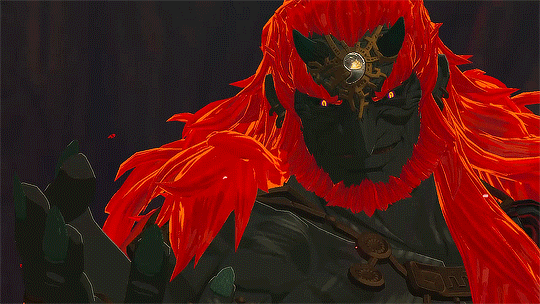
Which is… really disappointing, to say the least. Because I happen to like Ganondorf. His character and his place in the mythos have always been the forefront of my interest in the series; forget Link or Zelda. Naturally, I was drawn in by TOTK's marketing about Ganondorf's return as a human antagonist after a 17 year long hiatus. Given how much of a reinvention BOTW was for the series as a whole, I was disappointed back in 2017 to learn that Ganondorf existed only as a mindless force of primordial evil. "How lame," I thought, "but I guess it's not really Ganondorf." Calamity Ganon was just that: Ganon. And Ganon's always a full-blown monster, divorced from any nuance possessed by his OOT, WW, and TP selves. Then the first teaser for TOTK dropped, placing Ganondorf the man (if a little worse for wear) front and center. Intrigued, I enjoyed the explosion of enthusiastic fan art that followed, as well as the speculation regarding the role he would play. Surely, he would be more than a one-note villain! My expectations rose as Nintendo revealed more about him. His new design didn't immediately scream Dark Lord; and in his first speaking role, he draws attention to the fact that he has returned (within universe and meta-wise) and he has a vision for the world. I couldn't want to see the final product! Yet here we are.
It's a strange thing to fixate upon, when I don't have any skin in this game. But I'm passionate about storytelling. I enjoy rich narratives with nuanced characters, and I respect those that fully commit to the ideas they present... whereas stories that try to have their cake and eat it too, well, those pique my interest as well. Whenever I see untapped potential, my writer's mind cannot help but ponder the age-old question of "What if?" And I intend to do just that, in the cut below (this rant is long enough as it is).
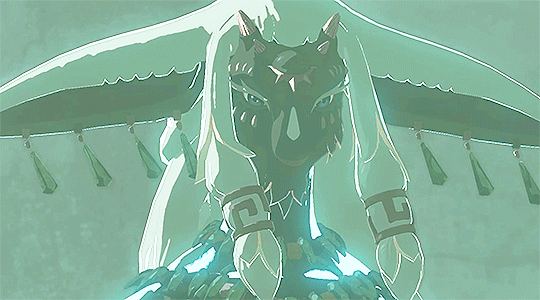
Of course, no amount of brainstorming can change the reality of a product. A ship's structural flaws only become apparent once it's left port, but there's no recalling it then. Nonetheless, there is value in the discussion. We should always critically analyze what corporations give us, desiccating their products to discern the messages (whether intentional or not) contained within—especially when the product is aimed toward a young audience that might not have the cognitive tools to decipher those messages for themselves. Even if we cannot affect change in a monolithic company like Nintendo, we can still draw lessons from their missteps to improve our own writing.
If I have such grievances with TOTK's story, why bother with a rewrite? Because:
Playing within the limits of another's sandbox can help to build creative muscle.
I believe TOTK has all the right ingredients for a compelling story, if this new series wasn't so afraid to challenge its narrative roots the way it has its gameplay.
A few more things to note: I am not a professional writer, nor am I a veteran of the series. I'm working strictly with what TOTK brings to the table. I'll make no efforts to reconcile the continuity errors between BOTW and TOTK (though it deserves mentioning), or even attempt to fit this in a single cohesive timeline with the rest of the franchise. I am not that brave lol. What I propose below is simply how I would use these toys; YMMV. I hope this inspires discussion more so than congratulation or wordless agreement (though my ego will accept compliments all the same, especially since it took no small amount of spoons to organize my thoughts like this). As Ganondorf says:

A Modest Rewrite of TOTK's Ancient Past Storyline
Zelda is still flung to the past, but she awakens not to a picturesque golden age under the magnanimous rule of an infallible demigod. Instead, sadly reminiscent of her own age, the land lays in ruin, in the immediate aftermath of its own calamity. But this isn't the fault of Ganon. The blame lies solely with the Zonai.
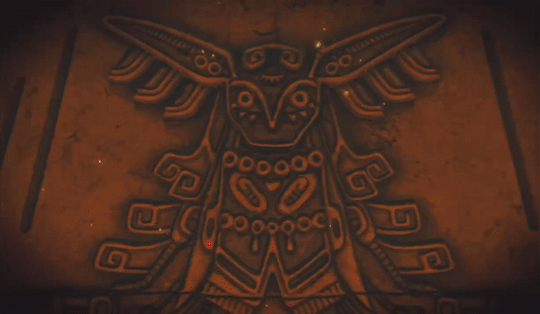
The Zonai were understandably viewed as gods. A people who live up in the sky on floating islands, in possession of miraculous technology (including killer robots to protect their interests!), and magical artifacts that in the wrong hands can unleash cataclysmic power? A civilization as powerful as theirs doesn't suddenly end without a very good reason. Yet as far as I know, no explanation is provided as to why Rauru and Mineru are seemingly the last of the Zonai. No mention is made of a rival power that could've taken them down; certainly none of the terrestrial races. Remember, the Zonai were seen as gods. If you were to ask me? A civilization with that great of a power at their disposal, and apparently so much of it that Rauru has four more Stones (not including his own, Sonia's, or Mineru's) to pass out as he sees fit... can only destroy itself.*
* I know the Zonai are depicted in text as a purely enlightened and benevolent race... but as far back in the franchise as OOT (which TOTK draws a lot from), not even Hyrule—the standard by which all civilization in LOZ is judged—was above a civil war, orphaning Link. War Within LOZ clearly isn't waged solely against primal forces of evil that can, must, and should be destroyed. And that's good! A story is made richer when even the Designated Good Guys can fuck things up, when characters are allowed to contain multitudes—good and bad qualities!
Power does not defuse conflict. It only escalates the scope of destruction once it's unleashed. So, for whatever reasons the Zonai gave themselves then clung to, they started fighting each other. Using their flying machines and automatons, battles were fought upon and between their sky islands, the detritus of war raining down on the lands below—the inhabitants of which can do nothing but watch as a war rages in heaven—until finally the full power of the Stones is unleashed in an exchange that guarantees mutual destruction. The sky islands all plummet to the earth, wreaking mass destruction. This is the world Zelda finds herself in—where the land has been cracked wide open, the skies are choked with dust, and no one gets along... so unlike the world she knows.

Zelda still comes into the care of Rauru and Sonia, but Rauru is merely Sonia's consort—he holds no power as king. It's evident from the start that Sonia is steering the direction of Hyrule—a humble territory in this age—in this tumultuous time, although Rauru is backing her. It's thanks to Sonia that Rauru and Mineru survived the fall of their sky island, brought back from the brink of death. It was during this time that Rauru fell in love with her; and to repay her, Rauru revealed that, between himself and Mineru, they have three intact Stones (a small homage to the Triforce since it doesn't matter in this continuity) with which they can secure Hyrule's place in this brave new world. Importantly, this isn't portrayed as any more righteous than a nation acquiring a clear advantage over its rivals. Indeed, Zelda's thrown for a loop to learn that in this era, the other races like the Gorons and the Zora aren't merely independent from Hyrule but have a history of conflict—something she never learned in her history books. And tensions are only rising, as these rival nations find Stones of their own after much scavenging, shifting an already fraught balance of power. The gods are dead, their empire shattered—yet slivers of their strength remain, for those daring enough to claim them. By using one of these Stones, a tribe could secure its borders, reclaim ancestral land... or conquer new territory. This is where Ganondorf enters the picture.
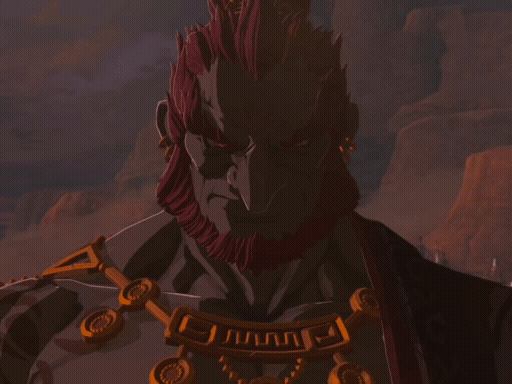

This Ganondorf is still a villain, but there's room for nuance. He's ruthless and prideful, and certainly antagonistic toward Hyrule; but the narrative respects him as much as his fellow monarchs. He cares about the success of his people, because his entire identity is shaped around being their king. Remember that a male is born to the Gerudo only once in a hundred years. Ganondorf is but the latest in a lineage of kings, with the heavy burden of expectation that carries—he has a legacy to uphold or surpass if he can help it. And ever since he was a boy, he envied the easy lives and green lands of Hyrule, so as a man he has made it his personal ambition to conquer it... but at every turn, he has met his match in Sonia, who is every bit as skilled of a commander and a magician. The two of them have clashed so many times that they've become the most intimate of enemies, hard pressed to hate each other because they both know what's at stake. For years, they've been evenly matched... but the downfall of the Zonai changed everything. In spite of the Gerudo's best efforts, they haven't been able to find a single Stone to make up for the fact that the crash of their local sky islands kicked up terrible sandstorms and drove monsters from their usual habitats. The Gerudo are more desperate than ever. Then Ganondorf learns that his oldest enemy is housing two living Zonai underneath her roof, and has a total of four Stones at her disposal. He cannot battle Hyrule as before, lest he risk annihilation—if not by Sonia's hands, then another tribe that is more willing to coup de grâce a decimated competitor, or they might perish to monsters, or the desert might finally claim them, the dunes swallowing up their bones and burying their accomplishments. He could bend the knee—throw himself at Sonia's feet and hope for the best, sacrificing Gerudo independence to share in Hyrule's bounty. But his pride will never allow that.
He grew up in the shadow of detached gods, was raised on tales of how they were the ultimate arbiters of truth and value—almighty in their judgment and unassailable—and he saw for himself that they would only ever come down to earth to indulge their curiosity about the quaint groundfolk or harvest what their sky islands could not provide, most notably Zonaite (of course they named it after themselves...) to fuel their miraculous machines, the secrets of which they refused to share with anyone 'because they weren't ready' and would in fact use those same machines to keep the groundfolk from overreaching. Ganondorf is the first king in generations to glimpse a sky—and a future—uncontrolled by the Zonai. Though he was raised to be a king, the very definition of absolute power and privilege, only now is he truly beholden to no one. Finally, he is free to shape his own destiny. And he's not about to relinquish that freedom on account of his dearest enemy getting in bed with a fallen demigod—no, not a god... the Zonai's civil war proved they are not infallible. Without their technology, without their precious Stones, they're flesh and blood, the same as anyone else. Mortal. And what is a man to a king?
Despite the bad blood between them, and the generations of strife between their peoples, Ganondorf is able to convince Sonia that he is willing to bury the hatchet for the sake of his people, that his desire to enter the protective embrace of her kingdom, given the dangerous new world they find themselves in, is genuine. His true intentions are not so painfully transparent, but still Zelda does not trust him. She can't stop wondering how this man becomes the source of the Gloom in her era, even if the hateful creature she encountered in the depths below Hyrule Castle hardly seemed human at all. But she cannot act on a suspicion of duplicity due to future events. So for Ganondorf's entire stint in Sonia's court, Zelda tries to weasel out the truth—and in so doing, builds a relationship with the future Demon King. Once Ganondorf catches on to the fact that Zelda sees right through him, it becomes a game of 4D chess. Who is this girl, a member of Sonia's court that he has never heard before yet is trusted enough to bear a Stone, and why is she so certain of his true motives? He's smart enough to suss out that it isn't simple bigotry. It's a fine line Zelda must walk, because she has a secret of her own—she hasn't told anyone that she's from the future, out of a rational fear of disrupting the past and changing history (but at the same time, she can't abide doing nothing, and these interests war within her).
Despite Zelda's best efforts, Ganondorf succeeds in his plot. In a single stroke, he eliminates an old enemy, deprives her nation of its leader and a Stone, and finally secures a Stone for the Gerudo. But claiming the Stone doesn't immediately transform him into an Almighty Demon King. The surge of power is great, but not so much that he's willing to engage three other Stone bearers—two of which are Zonai who of course have experience using them—so he wisely retreats, though not before telling Rauru: "No point in crying over this one. She's not the first victim of your arrogance. And we both know she won't be the last." He's made powerful enemies, but it's a battle he can fight on another day, and at least now he's on equal footing with the other factions and can take their Stones until he can finally conquer Hyrule. But Ganondorf severely underestimates the lengths Rauru will go for revenge. In killing Sonia, before Rauru's very eyes no less, he has made another enemy for life (and beyond).

Understand that Rauru survived the destruction of his people and their way of life. That's traumatic enough. But now, the person who saved his life, and gave it new meaning, is dead. Murdered. By someone he had come to trust. Because he put a target around her neck. He should have seen this coming, he should have listened to Zelda, perhaps then he could have stopped this. But it's far too late now. Before, he was content to merely support and serve—a just penance, he believed, for his small part in breaking the world. Now, he has a new purpose: To secure Sonia's legacy by any means necessary. He binds his fate to Hyrule, which will never be safe so long as Ganondorf lives. This isn't a wise and beneficent King of Light opposing a terrible darkness, but a grieving widower—who's also a skyborn demigod that just lost his one earthly tie.
After taking command as regent, Rauru does not invite the other races to a grand alliance; he brings them to heel through force. It's not enough for Rauru to immediately counterattack Ganondorf. He wants to destroy him, and what better way than to turn the whole world against him? Additionally, by consolidating the power of the Stones onto his side, he denies Ganondorf the opportunity to pick them off one by one. Zelda is witnessing history, the birth of Hyrule as she knows it, but there's nothing noble about it. It's simple imperialism, and she has to grapple with the fact that she's a beneficiary of it. If the peoples of Hyrule were united through bloodshed, does this invalidate the friendships she's made among those peoples in her present? She's confronted with deep questions which possess no easy answers.

Meanwhile, Ganondorf hasn't been sitting on his laurels. He sees Rauru is stacking the deck against him, such that even the Stone's power won't be enough to win the coming war. The Gerudo are outnumbered and outgunned. So Ganondorf turns to darker magics, begins to press monsters into service, etc. His search for ever greater power takes him into the Depths, where he finds a dangerous substance called Gloom. According to legend, it is the ichor of a demon god who was struck down long ago and sealed away in the bowels of the earth. It drains the life-force of whoever touches it, that much is certain... but Ganondorf reckons it is possible to access this stolen vitality to perform feats of magic hitherto thought impossible. Through his mastery of dark magic, amplified by the Stone, he is able to harness the Gloom. First he tests it upon monsters... then dissidents, those reluctant to oppose Rauru's growing army. He makes examples of them, siphoning away their life-force to show those who will not fight will still serve their king. But this barbarous act only creates more dissent among the Gerudo. Tradition appointed Ganondorf as king, but that doesn't mean they have to stomach his tyranny. Even if he manages to win this war, this new power could allow him to reign forever, and he just demonstrated how little their individual lives mean to him. Worried for the future of their people, Ganondorf's second-in-command, Nabooru, sells him out in exchange for clemency, enabling Rauru and his Sages to capture him. Instead of slaying him on the spot, Rauru declares his intention to haul him back to Hyrule for a public execution in Sonia's name. Nabooru insists on coming along; if the King of the Gerudo is to die on foreign soil, then one of his own should observe his passing.
Ganondorf doesn't respond well to this betrayal. After everything he sacrificed, they would still rather roll over and show their bellies—surrender their freedom and pride—to a foreign lord. Who are these people, to abandon the courage of their ancestors? These are not his Gerudo. Ganondorf disowns them, swearing vengeance upon these cowards even as he is taken away in chains. The journey back to Hyrule gives him time to brood on his destiny. He was born to be a king, yet the place of his birth has forsaken him while the rest of the world wants him dead. Most people would crumble, succumb to despair. But his pride will never allow that. He will keep fighting, like he always has. He will crush any opposition, even if it's the people who gave him birth. He will rule, even if he must reign as king of the undesired. There's a saying: 'The brighter the light, the deeper the shadow.' And Rauru has blazed oh so fiercely. To oppose him, Ganondorf must become nothing less than the King of Shadow.
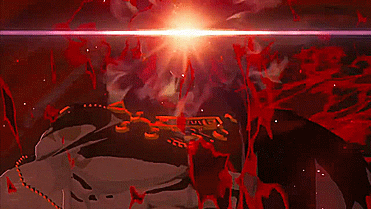
At the moment of his execution, he draws upon the Gloom to transcend his mortal limits, finally becoming the Demon King. In this form, he's able to battle all seven of the Sages, but he's still not almighty. In theory, Rauru is able to slay him... but he chooses not to. Imprisoning Ganondorf isn't done as a last resort; Rauru wants him to suffer. "Killing you would be far too kind. I will make you wish you could die. You won't. I will hold you here. We will build our kingdom over the lands you tried to burn and pillage. And you will rot here, trapped in this moment, long after you have faded from its memory." And he sincerely believes that he'll be able to contain Ganondorf for all time—because he was able to ascertain that Zelda is from the future, after examining her Stone (his Stone, as it turns out) and piecing together her strange accent and unusual notions, even though she has the pointed ears of a Hylian. He doesn't understand the power, but he does take it as proof positive that his victory is guaranteed and Hyrule exists well into the future... without ever learning the whole truth of it. Rauru is directly responsible for the cycle of Calamity Ganon, as Ganondorf's resent and hatred transformed the Gloom into Malice.
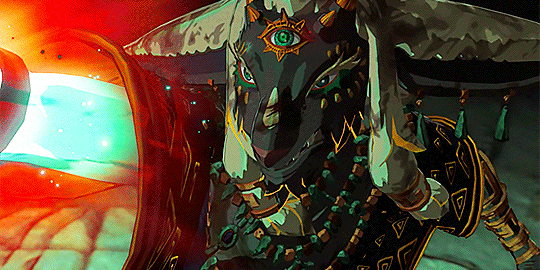
Rauru's pride is an actual flaw, one that is fully explored in the modern day. Just like Ganondorf says, thousands of years passed in the blink of an eye; Rauru hasn't had any time to process his rage. He only saves Link to make him a vehicle for his revenge; sticking around past the tutorial as Link's spectral companion, constantly pushing him to ignore all distractions to destroy Ganondorf ASAP, yet unable to control him directly. In staying with Link, Rauru learns of his legacy; that he created a lasting kingdom, but harmed future generations by inadvertently creating Calamity Ganon—Ganondorf's disembodied anguish and hate, nursed over thousands of years. His selfish decisions created more harm than Ganondorf could have in a single lifetime. Just as the Zonai destroyed the world once before, Rauru managed to destroy it again and again. Hyrule no longer even exists as a kingdom, destroyed by Calamity Ganon 100 years prior. Yet Link continues to fight—not for himself, but to protect and help those he cares about as well as perfect strangers. Rauru gives a touch of the divine to Link, and in return Link reintroduces Rauru to humanity.
In contrast: Ganondorf broods in the Depths, alone. Although he still has a corporeal form, he's just as much of a ghost as Rauru is. He's more isolated than ever, having awakened to a strange world where nothing is as he remembers it. The geography is different, the flora and fauna is different, the people are different. Especially the Gerudo. They don't remember him as ever having been a person at all, believing the monster of their legends merely adopted the form of a Gerudo. But that doesn't sting as much as how tame they've become in his absence. These Gerudo have no fangs; they're fully in bed with Hyrule in every sense of the word, and it disgusts him. Nothing in this world is right. Everyone has forgotten their pride and their history; no one remembers a time when Hyrule wasn't be-all and end-all. Unable to accept this future, he terraforms Hyrule in the image of what it used to be, so it might become a crucible once more. The strong will adapt and survive, while the weak rightfully perish. He will create a world that rewards might and daring above all else.
Ganondorf is none too pleased to learn Link is running around with the arm of the man who sealed him for millennia, and assumes that he has become Rauru's puppet (even more hand symbolism)... but that's a key difference between Ganondorf and Rauru. Link essentially drags Rauru through character development, rekindling a sense of humanity within him. Ganondorf has no one to break him out of his rut. His only company down in the Depths are monsters and the Yiga Clan, who revere him as the source of Calamity Ganon—for his power and opposition of Hyrulian supremacy—but do not see him as person, a king in need of counsel. Ganondorf is more alone than ever, but he refuses to address this. To despair is to admit that the world has power over you, and he is the single strongest being in the world. Gods do not weep. And in that final confrontation, Rauru addresses Ganondorf: They're both ghosts of the past, stubbornly trying to shape the future to their liking; but the present belongs to the living. They both need to let go. But Ganondorf's pride will never allow that. To admit defeat is to admit someone has power over him, and he cannot allow it. It becomes clear to him that the only option left to him is to not play at all.

He swallows his Stone and becomes a dragon, but this doesn't lead to another boss fight (to compensate, the third phase would be a more classical Ganon fight; a friend suggested the name of "Scourge of Hyrule—Apocalypse Ganon"). Instead, in line with what was established earlier—that to become a dragon is to lose yourself to the process—Ganondorf ascends to the sky... and bears no more malice toward Link or Hyrule. He becomes the ultimate in power—immortal and at last truly divine—at the cost of his ego. He's still dangerous since he radiates Gloom, but he doesn't attack, just like the other dragons: an idiot god. He returns to the Depths out of instinctual comfort, but will occasionally surface and usher in a Blood Moon. And like the other dragons, you can harvest rare materials from him to make the best Gloom weapons or whatever. + Leaving Ganondorf in this state leaves a door open for fanatics to try and restore him in a sequel.
So, that's all I got
There's a lot of things I didn't address. Like whether the line of succession was broken with Sonia's death (so is Zelda descended from a relative of hers?), what sort of characters the Sages should be, or what Zelda does after Ganondorf is sealed away by Rauru (I'm personally not comfortable with her waltzing up to the Sages and in a stable time loop binding all the races to Hyrule), how weird the Draconification plot point is (and how Zelda is restored to her human form by Good Ending ghost magic), how Zelda is restored in this version (sequel hook same with Ganon?), how disconnected I feel Link is to the Ancient Past storyline as a whole, whether my version of Ganondorf actually ever learned about him, I didn't really dive into the aforementioned imperialist message in TOTK (others have already done so better than I), etc. Thing is, I'm not a professional writer. I do it for the love of it, and that's what this is. A messy labor of misplaced love for a franchise I've never played, all because I was upset they didn't treat my blorbo the way I like. You know how it goes. My brain didn't know when to let go, but at least now it's out there and not rattling around solely in my noggin, making an awful racket. Maybe now I can work on other things. If you've made it this far, cheers.

#legend of zelda#my writing#tears of the kingdom#tears of the kindom spoilers#rewrite#posting this now even if it could use another pass or two#kinda exhausted with the whole thing at this point#it's taken a lot of spoons over many days#ganondorf#rauru#zelda
327 notes
·
View notes